SudanMap
March Sudan is a fairly closed-off, fearful, high-strung and paranoid country. Plain-clothes officers are positioned every hundred meters on busy streets to monitor the situation, listen for rumors, and clamp down on undesirable conversations. You need a permit to be in the country. You need a permit to take photos in the country. Snap a photo of an institution and you’ll instantly find yourself in trouble. Here’s a guide with a stack of permits accompanying two Western tourists. 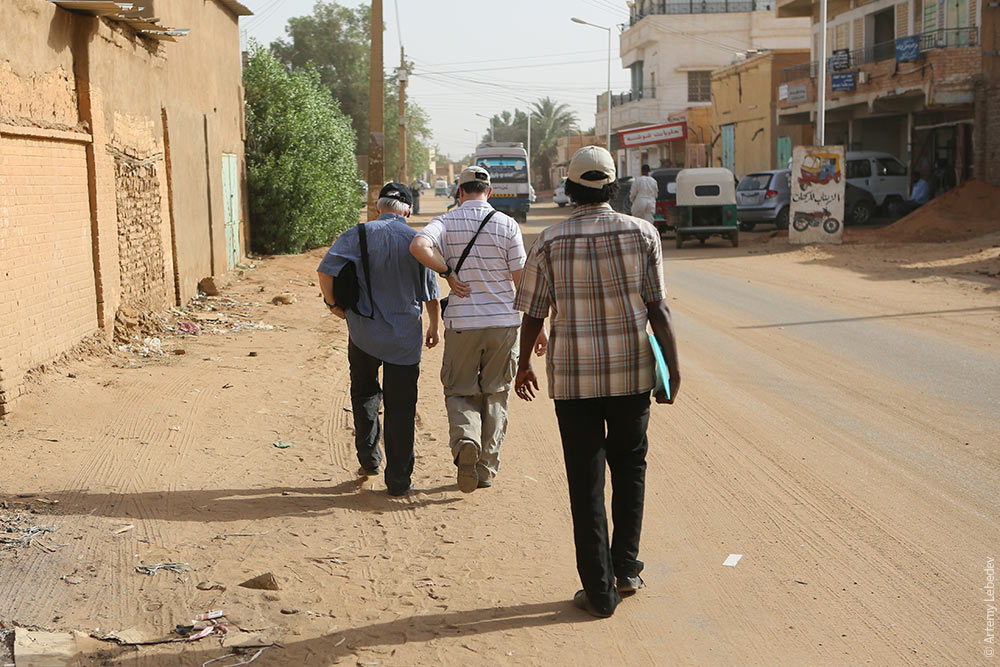 When you travel around the country, your driver or guide will check in with the local state security office in every large town or city, or hand over a pre-prepared photocopy of your permit right at the highway checkpoint. It’s impossible to wing it and drive around to some cities at random. International credit cards are not accepted in Sudan (just like in Iran or North Korea). 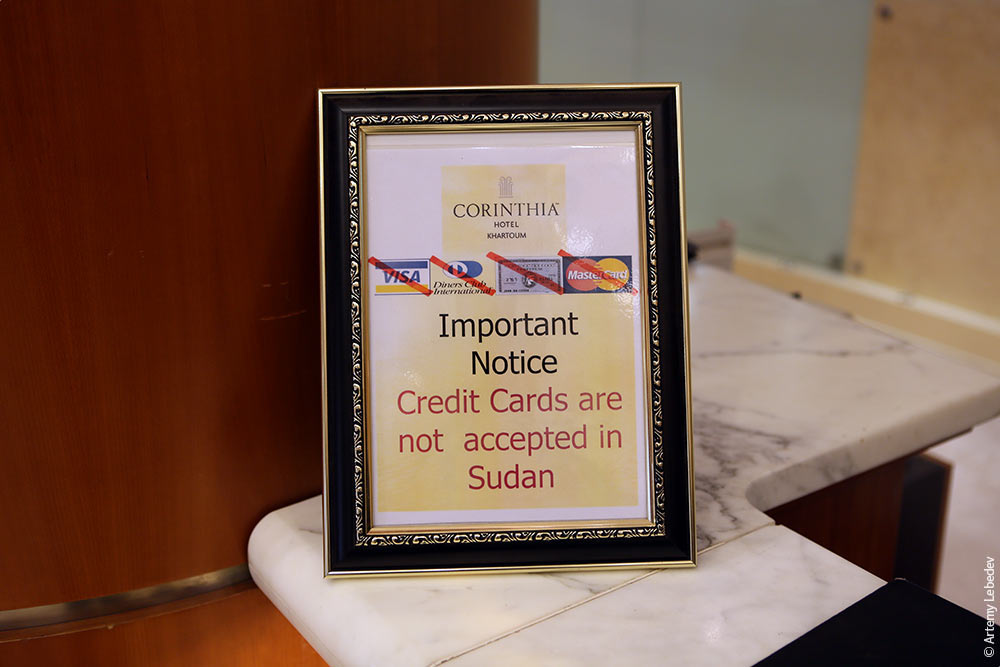 Many drivers protect their decorative rims from theft with metal cable ties. 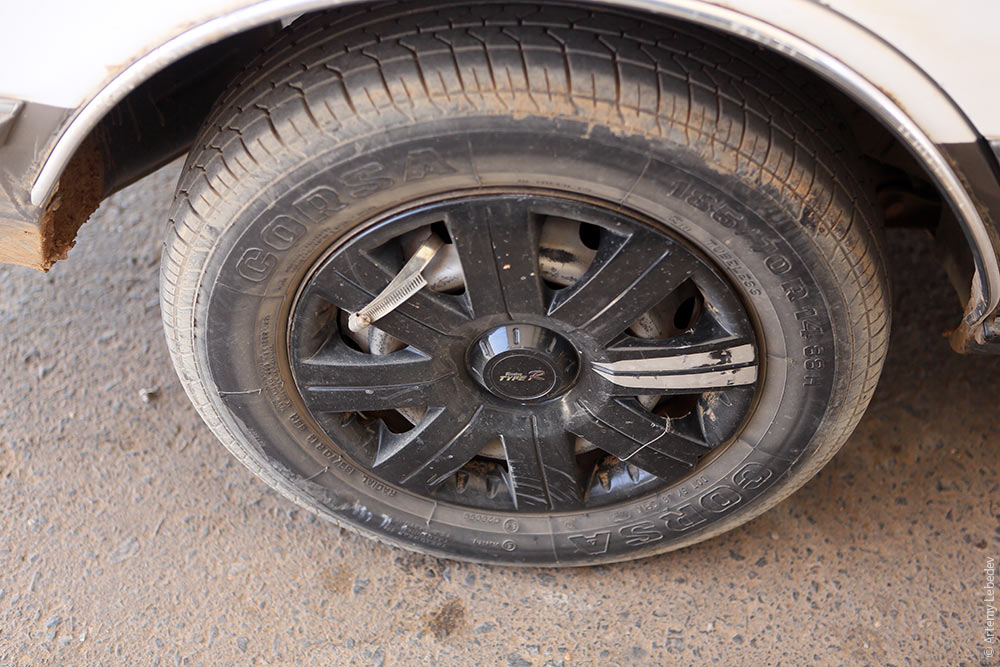 Car and tuk-tuk owners like to decorate the inside of their windshields with various toys and mirrors on suction cups. 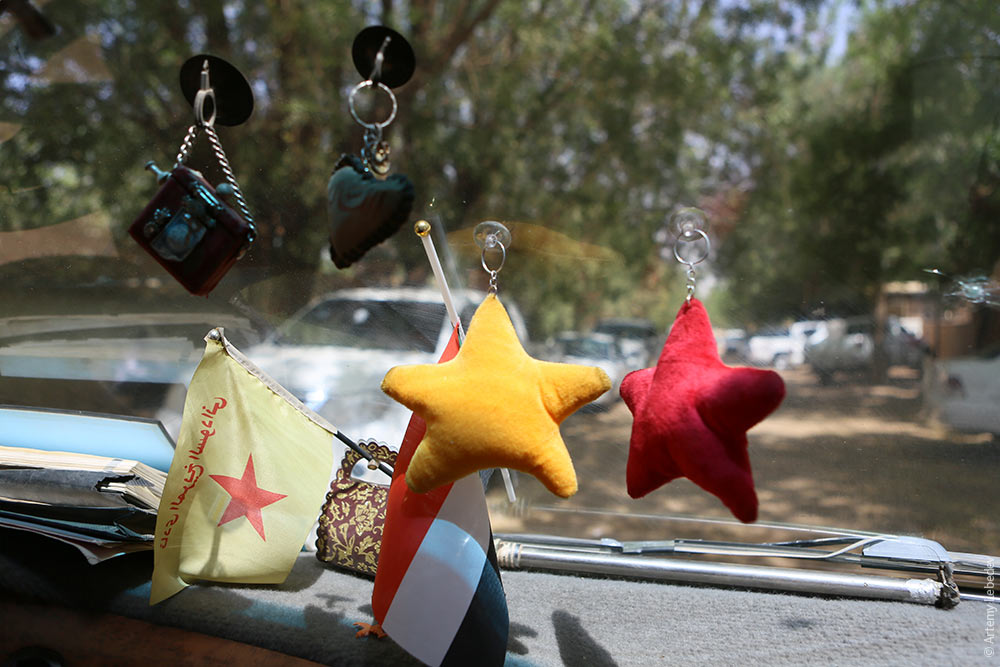 Sudanese tuning: practically every car is embellished with chrome pillar post trim. 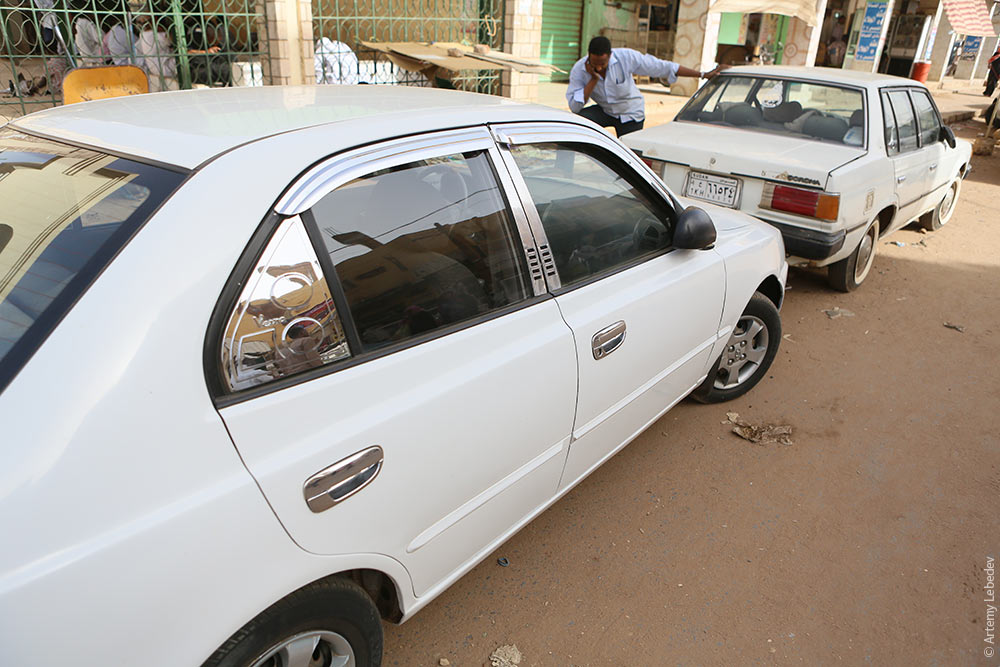 Window deflectors, mirrors, quarter glass windows are all trimmed with chrome as well. Without this, a car simply isn’t considered pretty enough in Sudan. 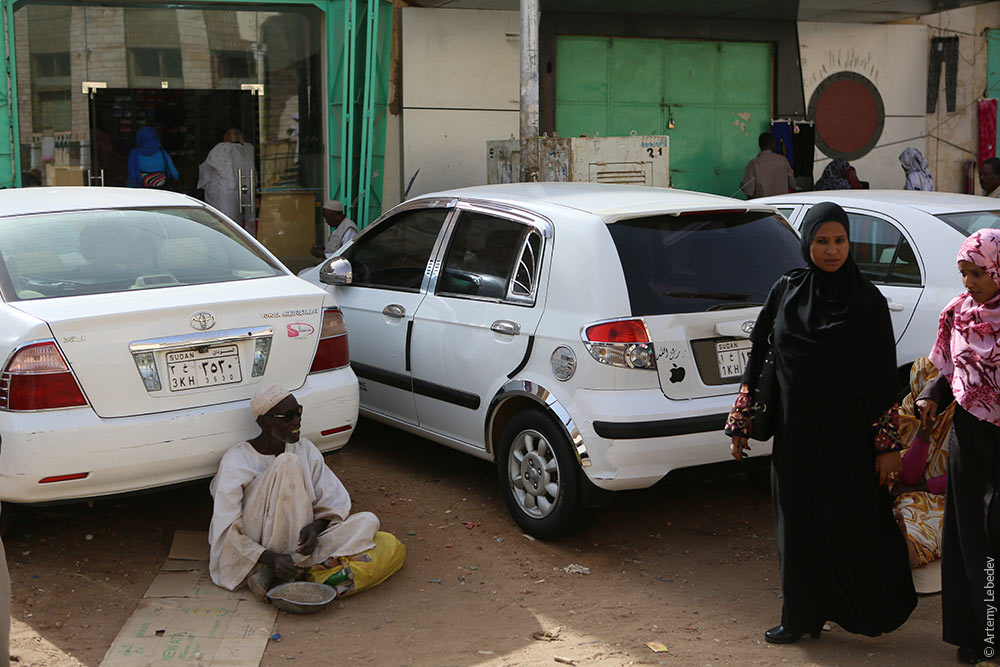 It’s not just private vehicles that are decorated. Bus and taxi drivers compete to see who can slap the largest number of three-spoke chrome stars onto their wheels. 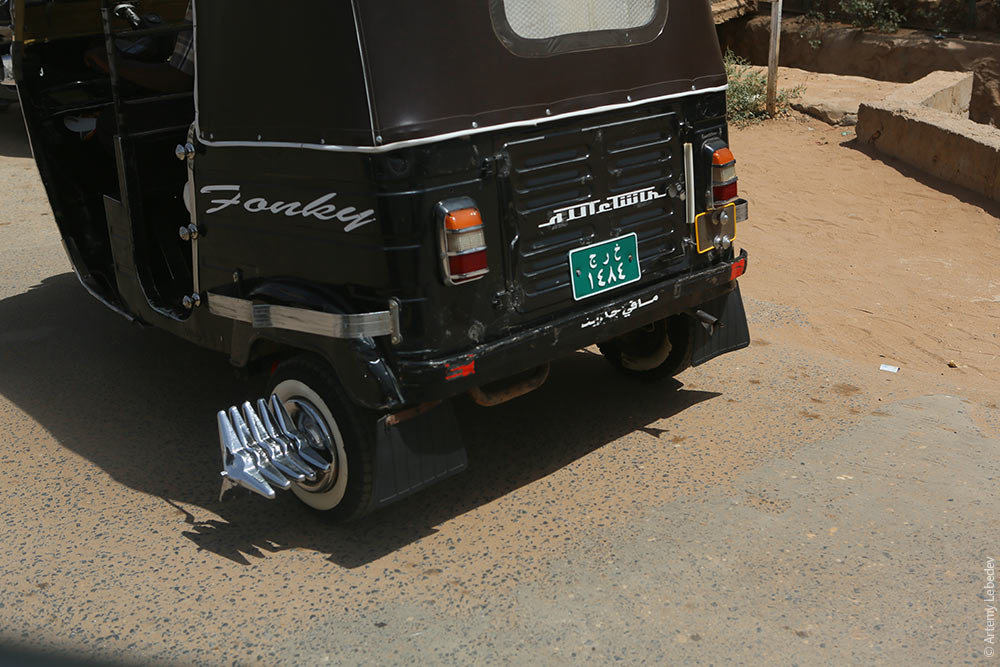 And practically every bus or taxi has stickers of various cartoon characters on it. Most often it’s Tom or Jerry. 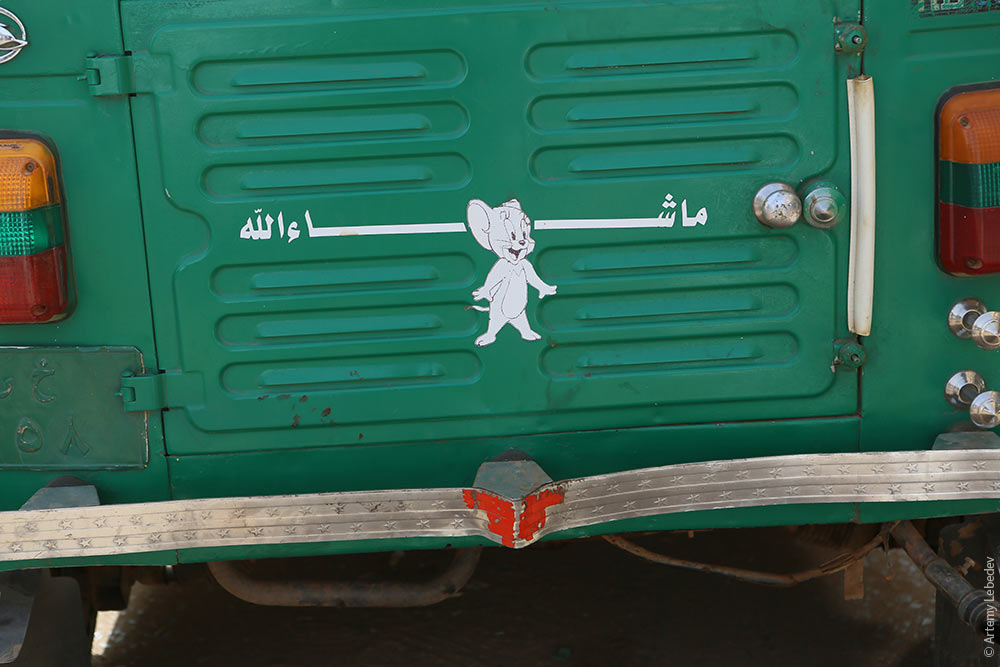 How such a tradition could have taken root and propagated in a conservative Islamic state is one of the mysteries of ethnography. 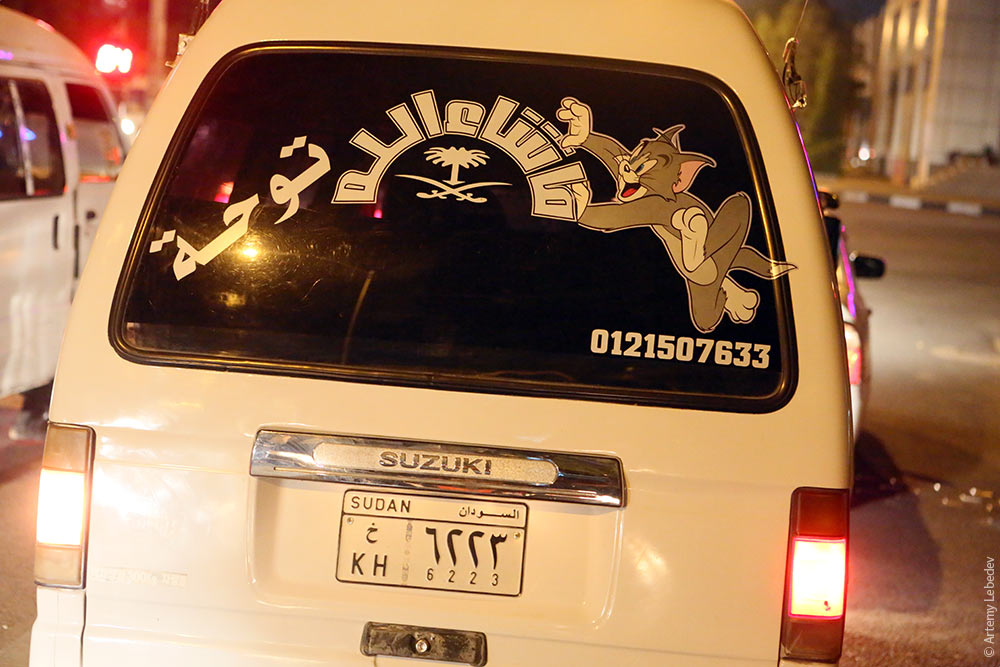 A license plate. 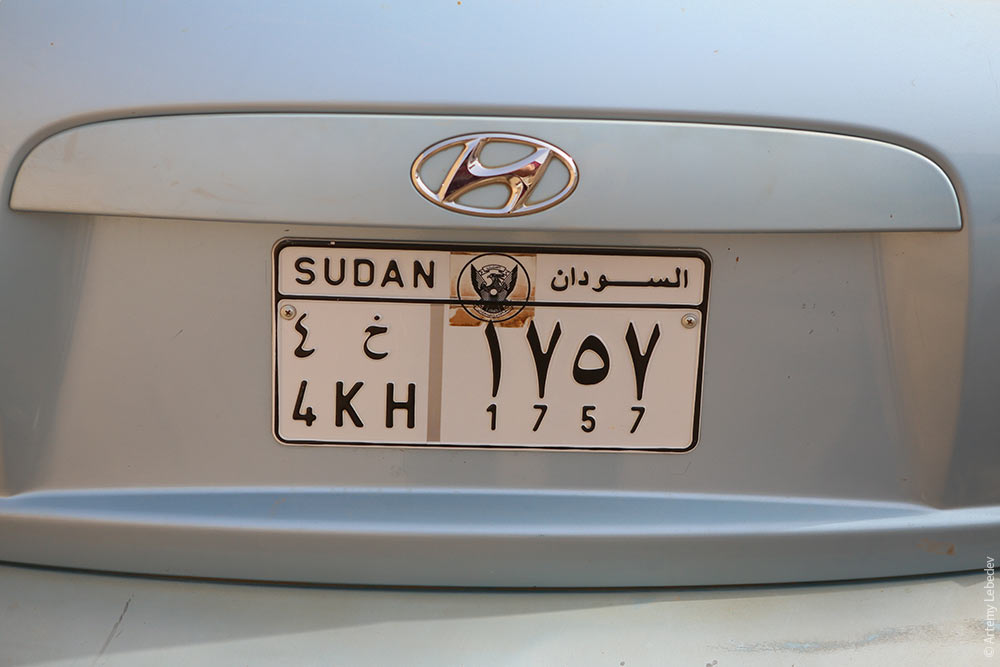 All the trucks in Sudan drive around with additional five-axle semi-trailers attached (practically like in Australia). 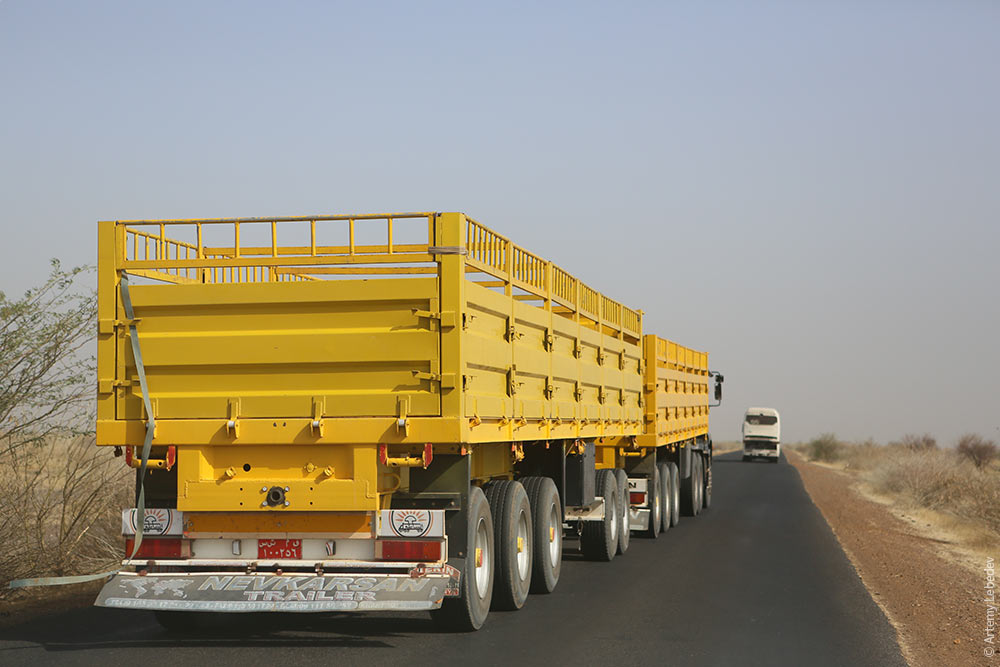 And because of the glaring sun, all bus drivers cover the top and bottom of their windshields with film, leaving only a narrow embrasure to see through. 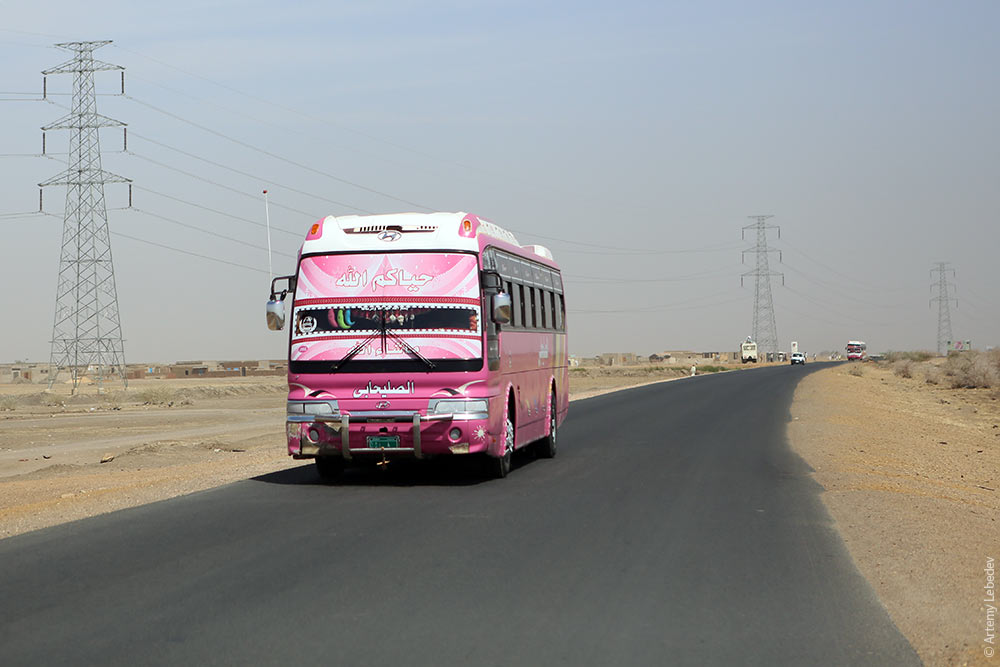 Chunks of tires that exploded from the heat are the main decoration of road shoulders across the country. 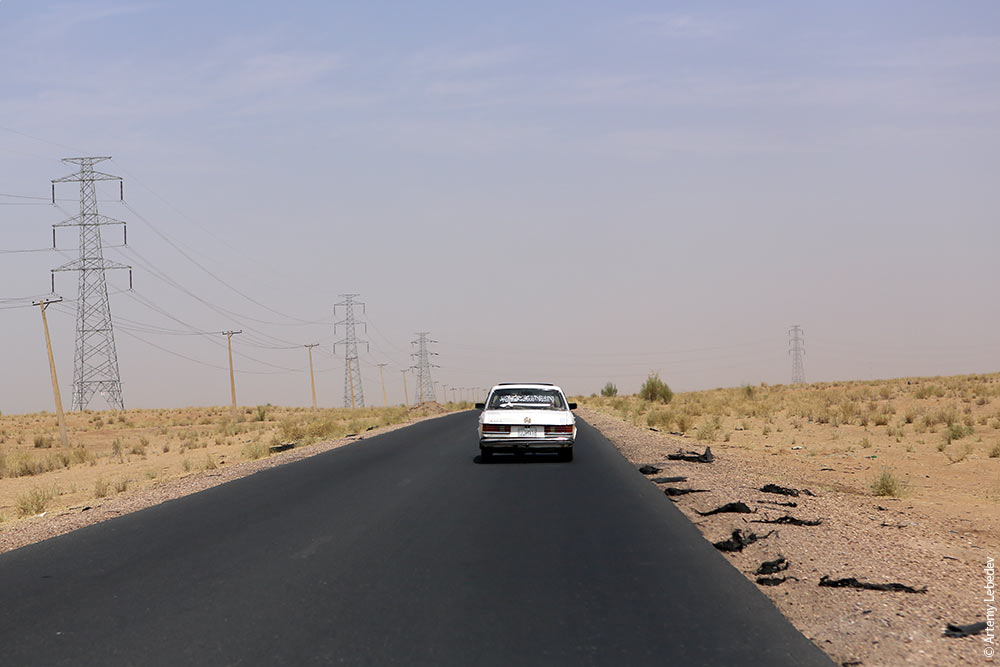 The countdown timer sections of Sudanese traffic lights hang separately from the corresponding light signals, which somewhat decreases their utility. 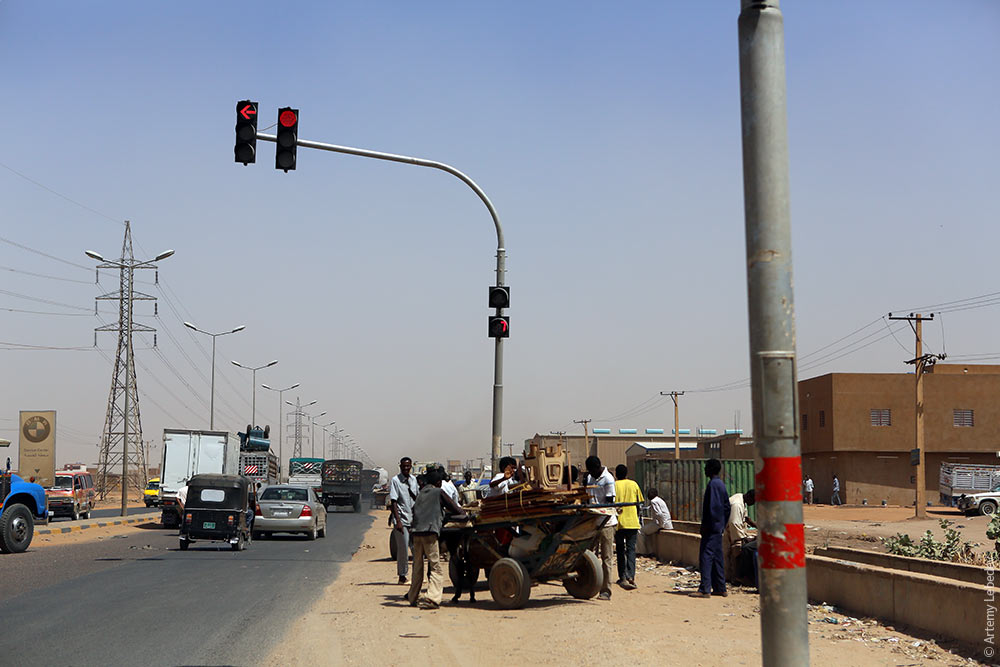 No tuk-tuks allowed. 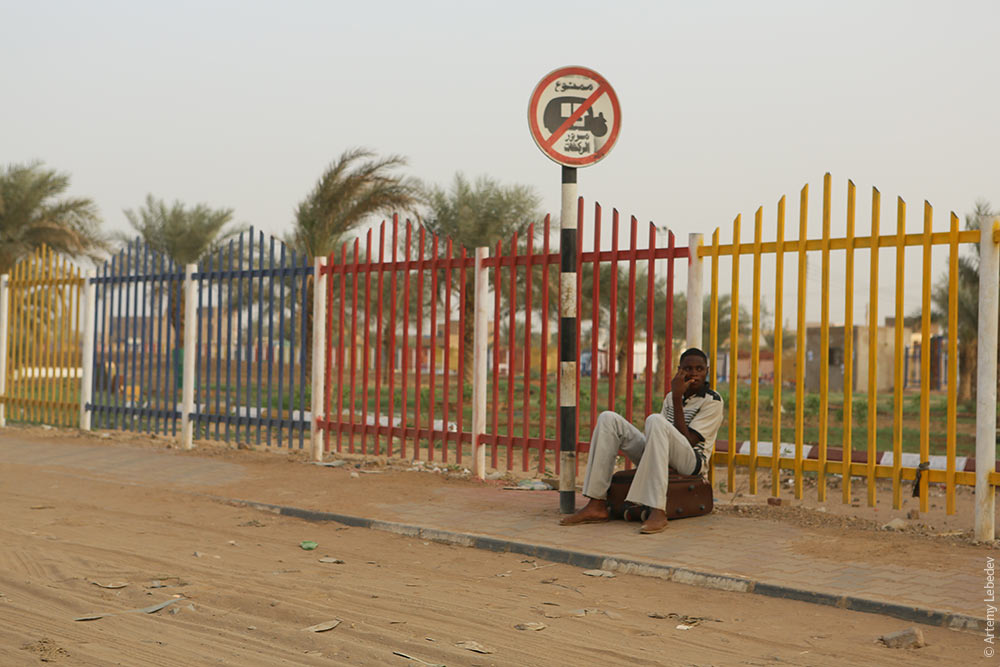 A pedestrian. 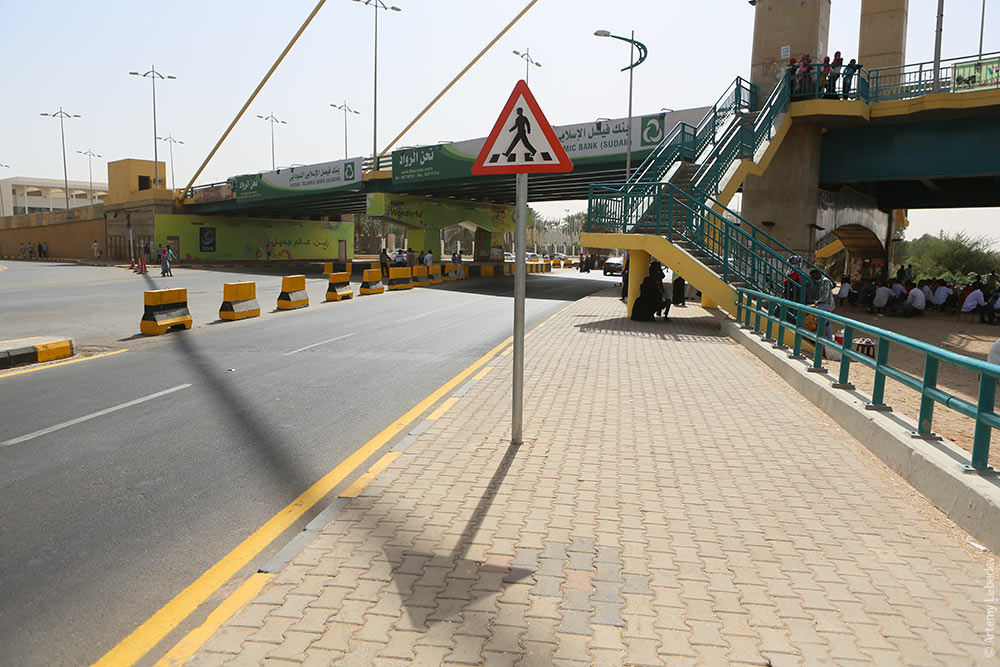 Children. 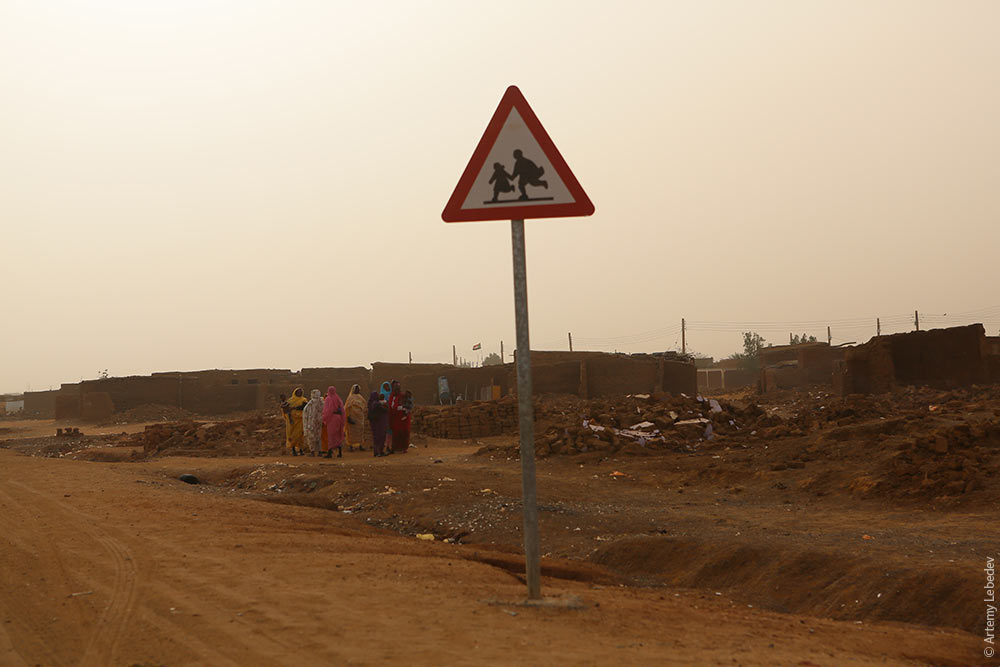 A parking diagram. 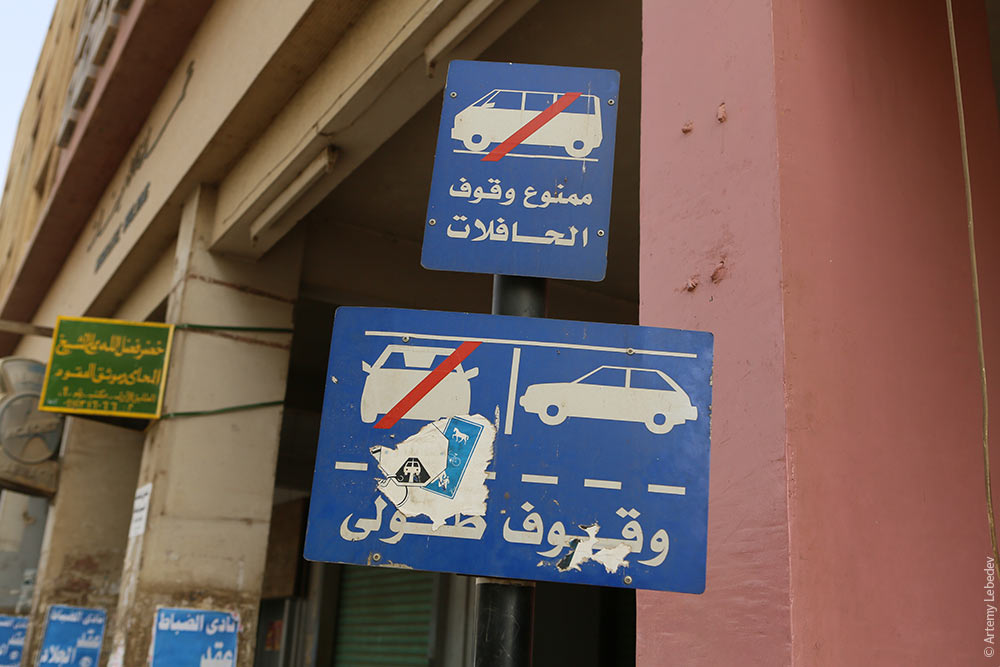 A sign. 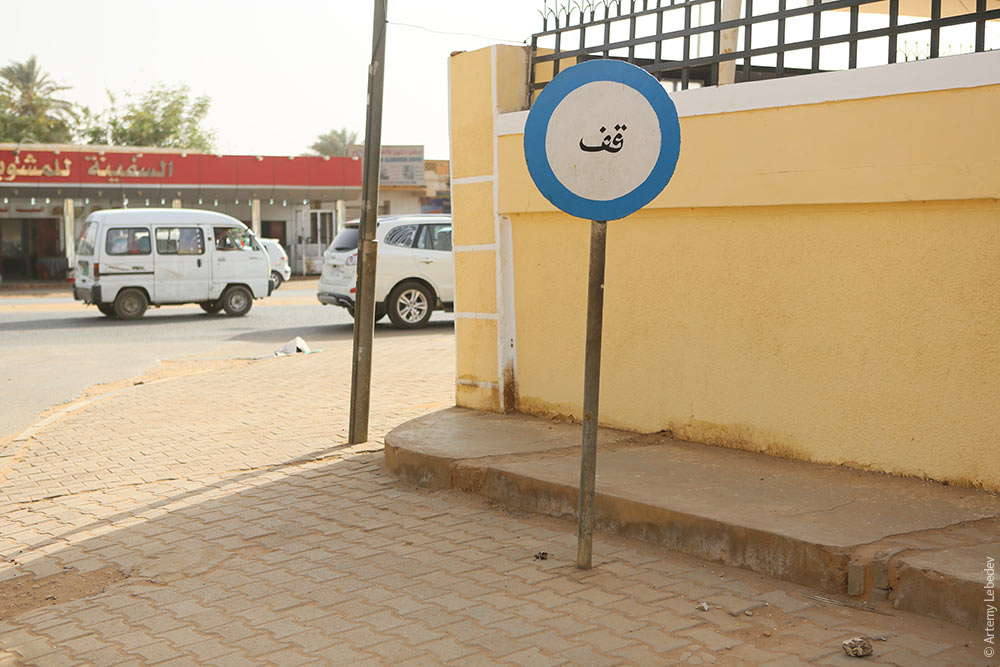 A few railways exist, but no trains run on them anymore. 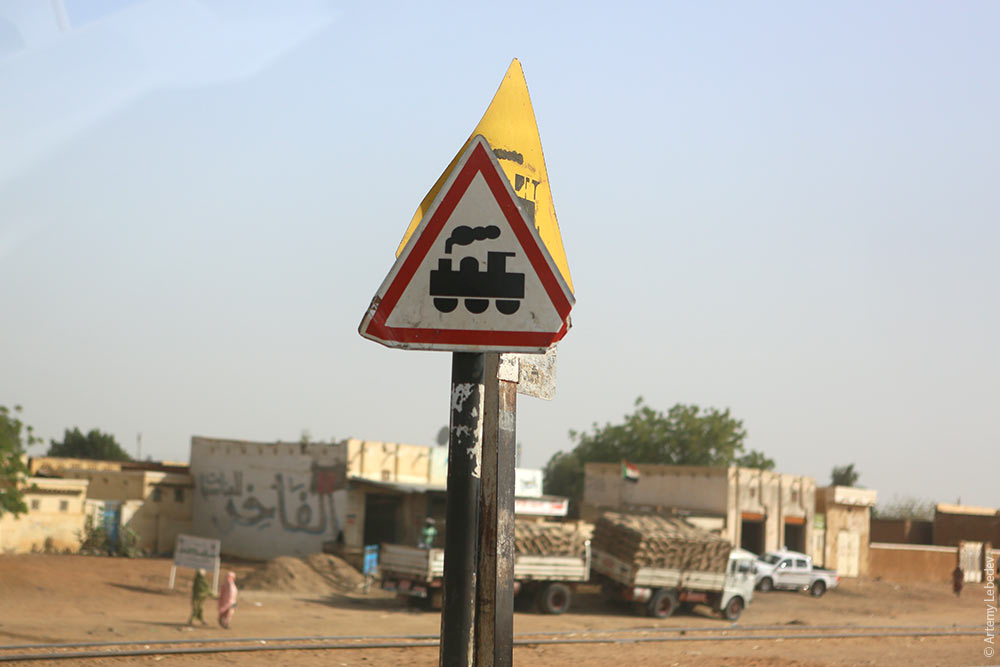 Awards are an important event in the life of the Sudanese. A police officer’s superior awards him with a medal for exceptional service. 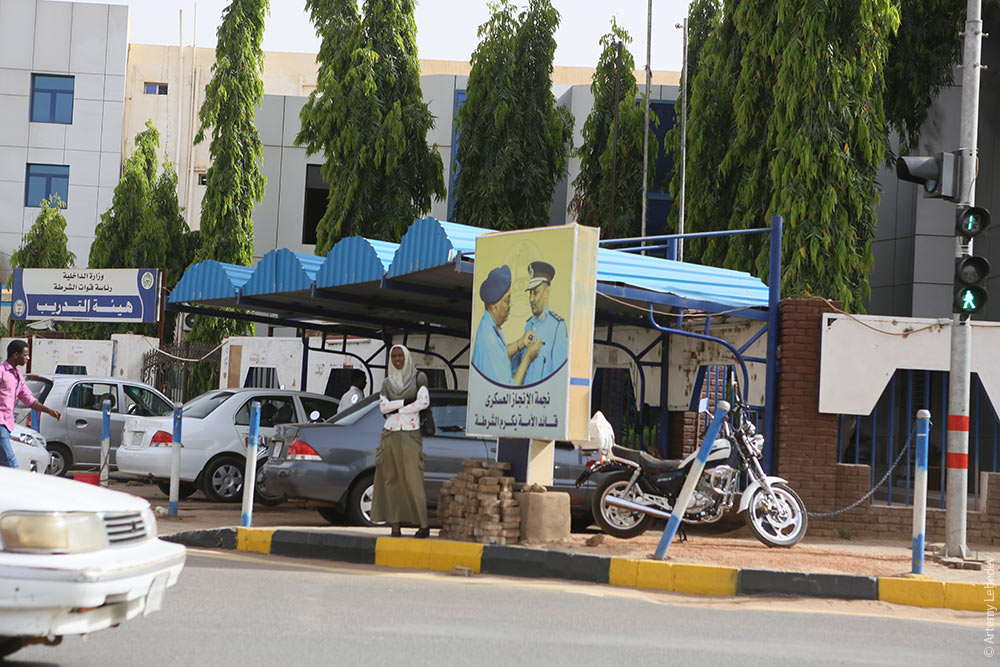 A little boy gives his mother a medal for feeding him the right kind of porridge. 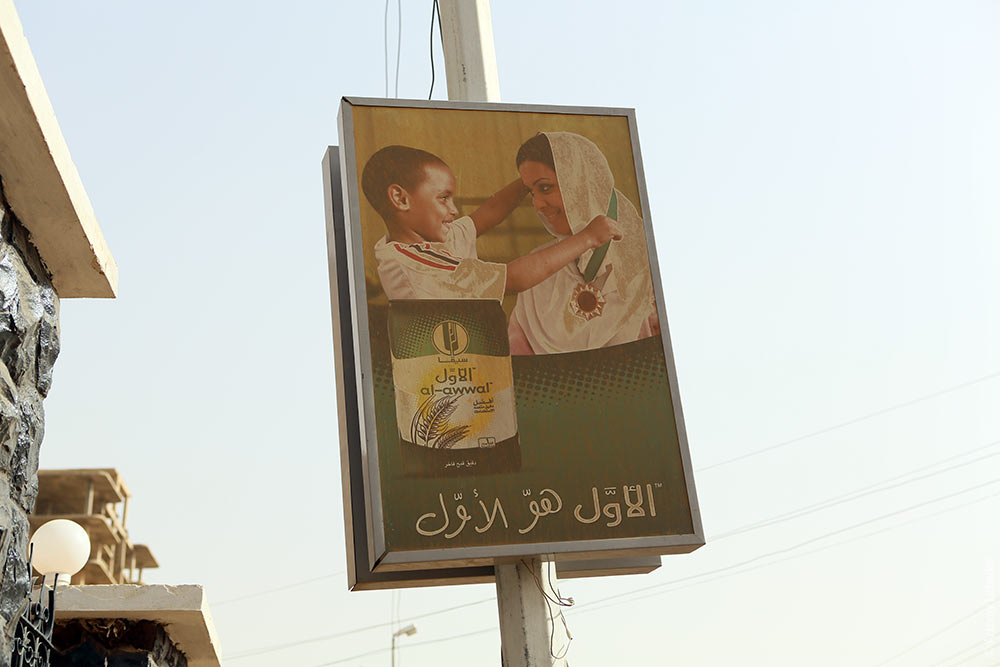 All the poles in the country are unattractively bolted down, with the bolts sticking out. Decorative caps haven’t been invented here yet. 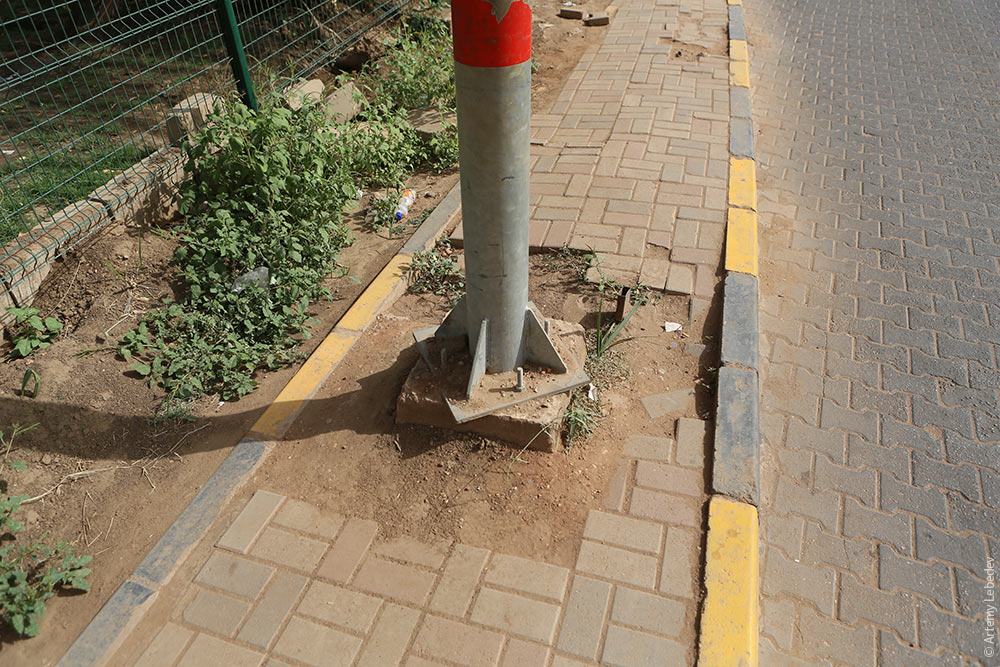 The predominant item of street furniture is a handmade stool constructed out of rebar and woven wire. It’s no bentwood chair, obviously, but this is what everyone sits on when they drink tea out on the sidewalk. 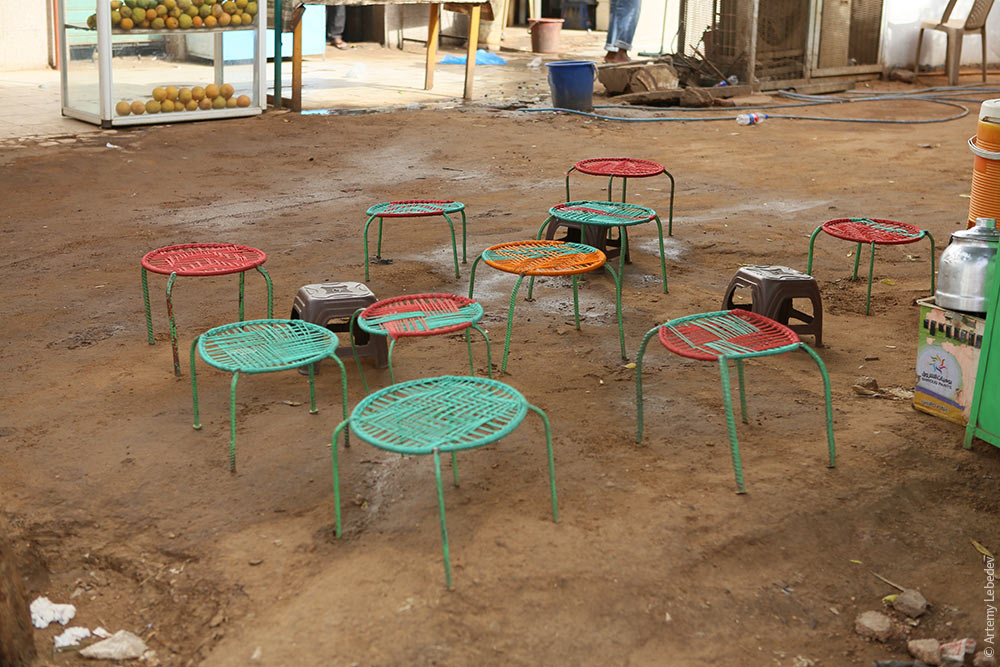 A payphone. 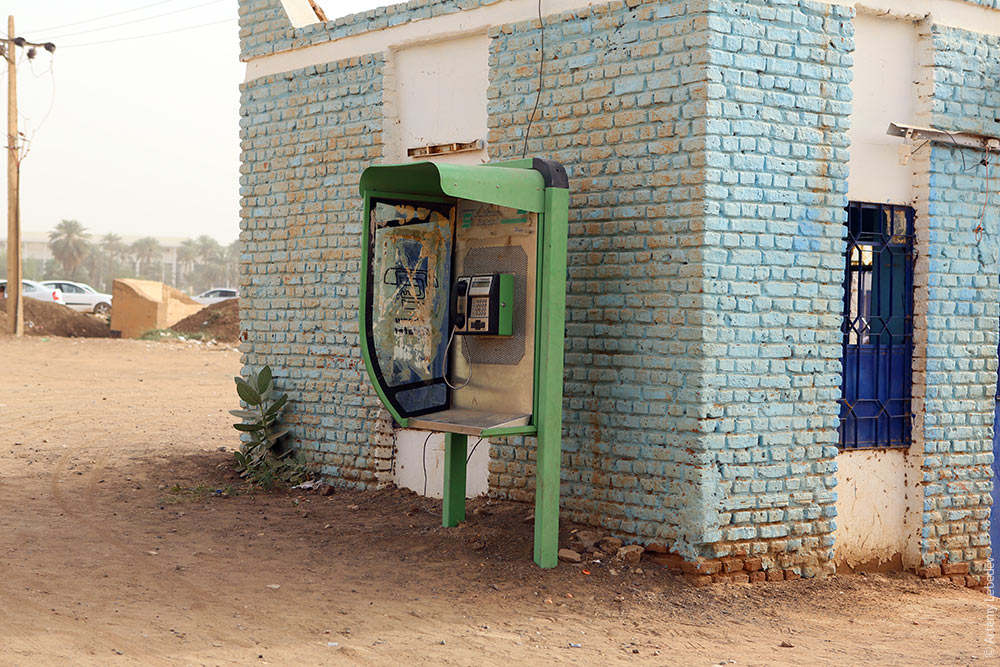 Two details liven up the cityscapes: towering minarets and rectangular water towers painted with a checkerboard pattern to make them even more rectangular. 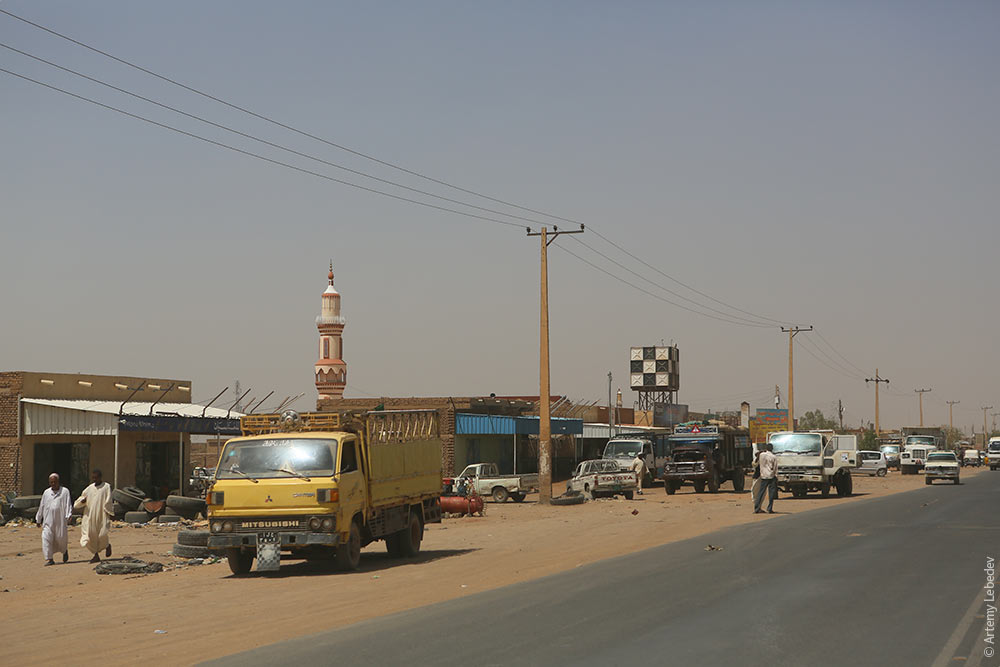 A thousand-year-old tradition lives on: earthenware amphoras filled with water are placed on every corner so that you can relieve your thirst and your donkey’s, too. You always see amphoras in museums, but they’re all scrubbed clean and it’s unclear how they were used in real life. 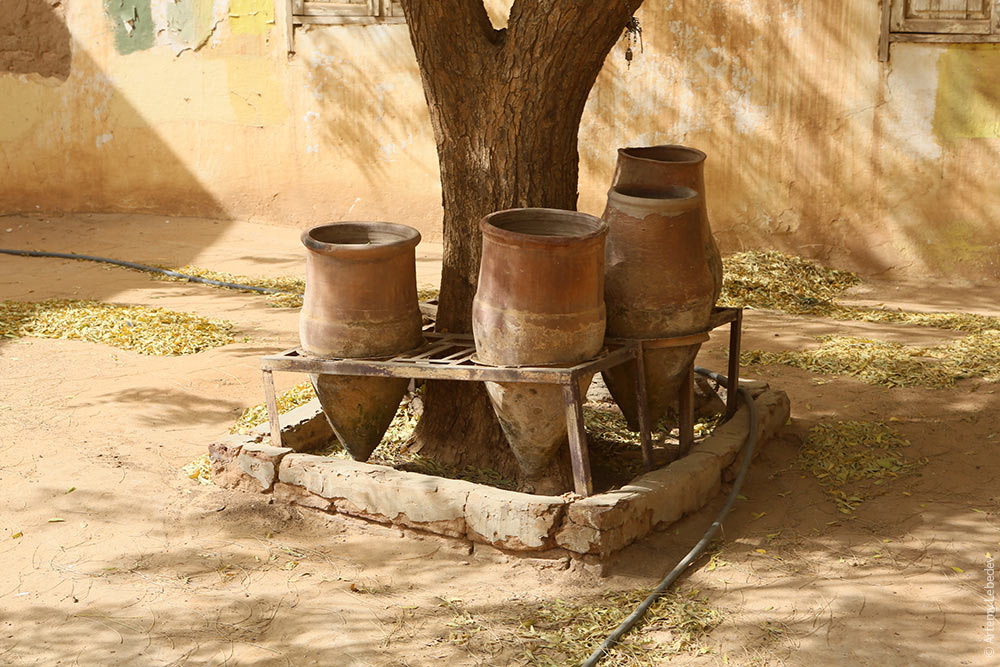 There are a few post boxes here and there, but their appearance doesn’t exactly make you want to drop your letter inside. 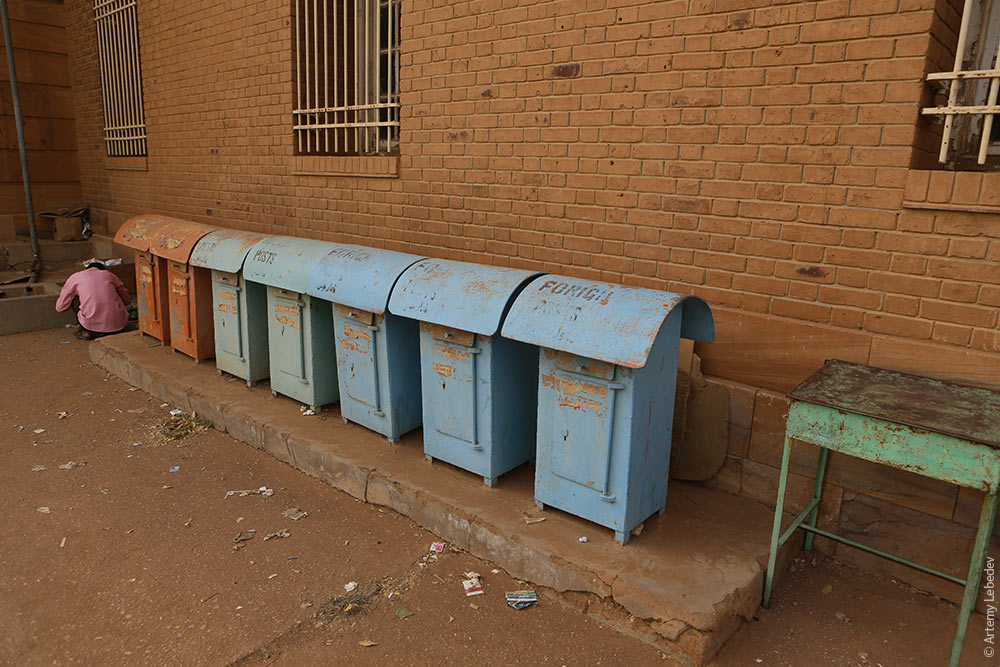 What if this is now a trash can? 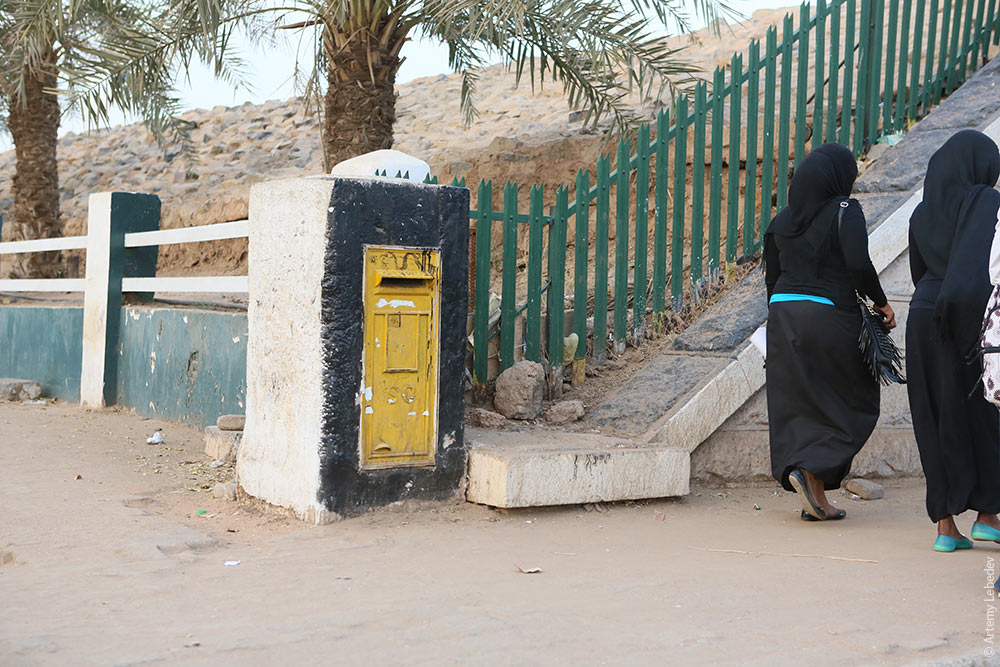 Let’s drive through a few cities. 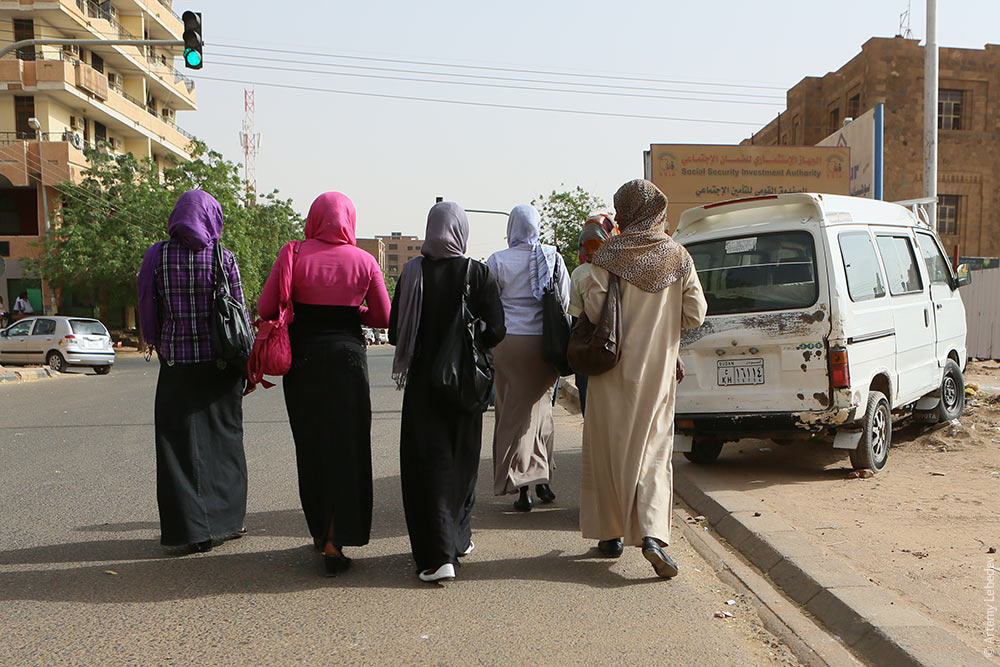 KhartoumMap
The capital has a handful of buildings which are usually shown on postcards and passed off as modern architecture. For instance, this hotel built with Libyan money, which people refer to as “Gaddafi’s Egg.” 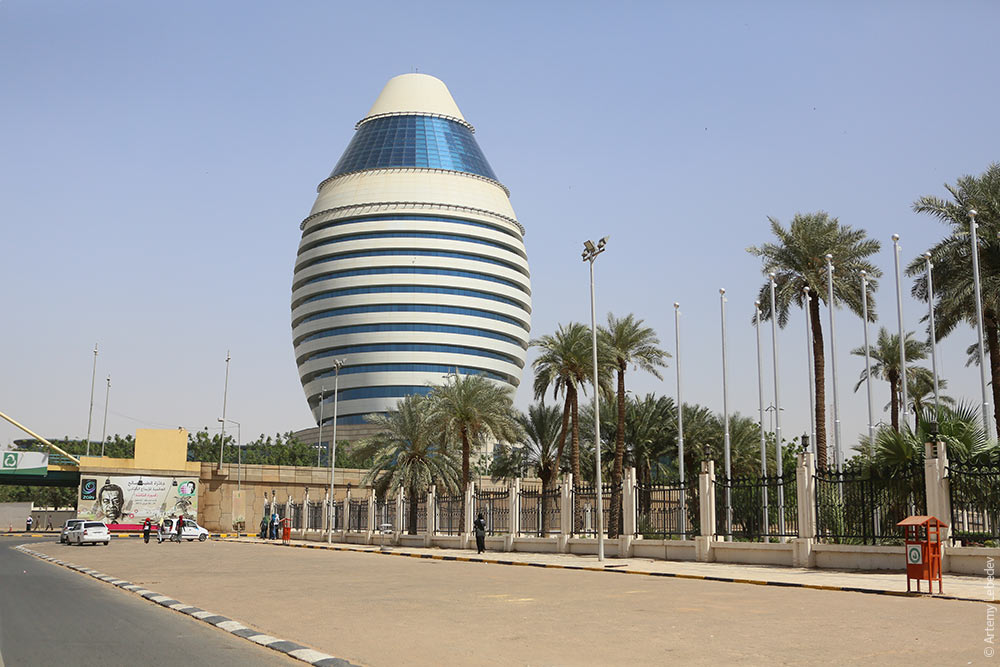 It would be more honest to show the city’s downtown area. 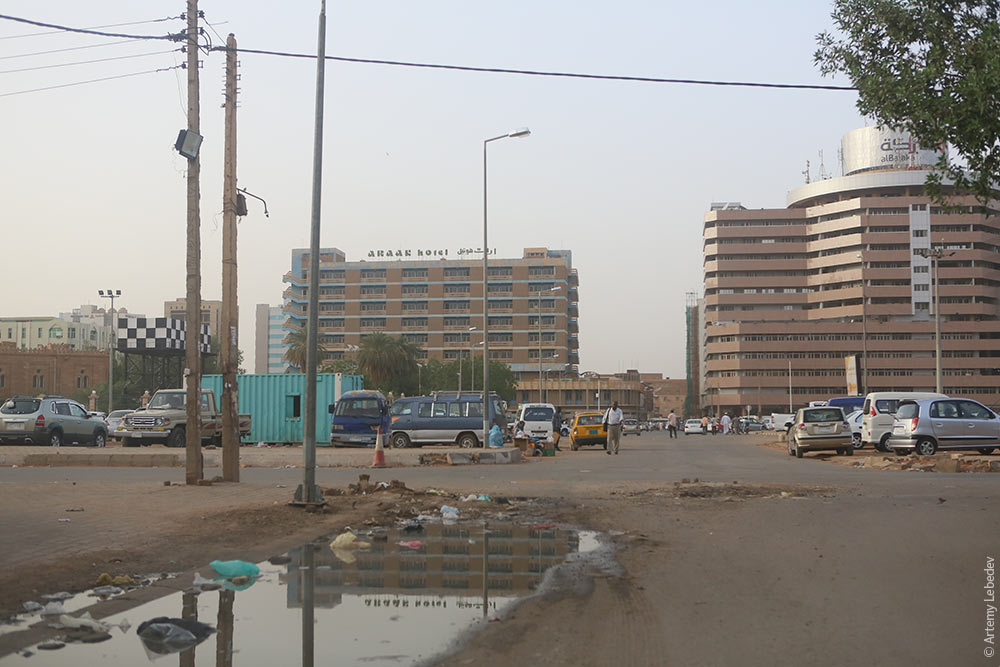 Construction in progress. 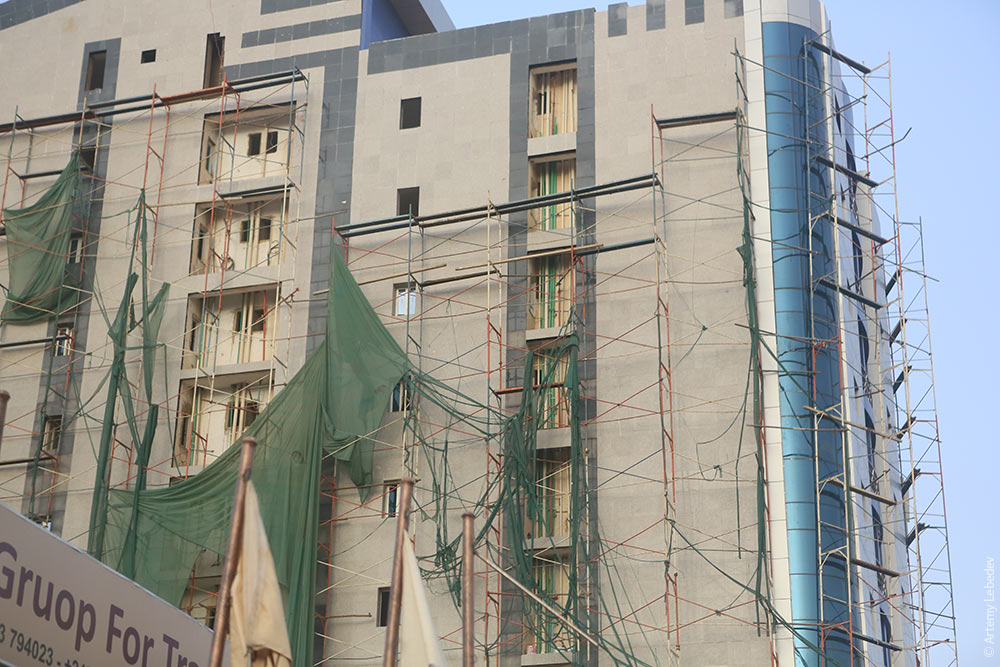 Women walking down the street. 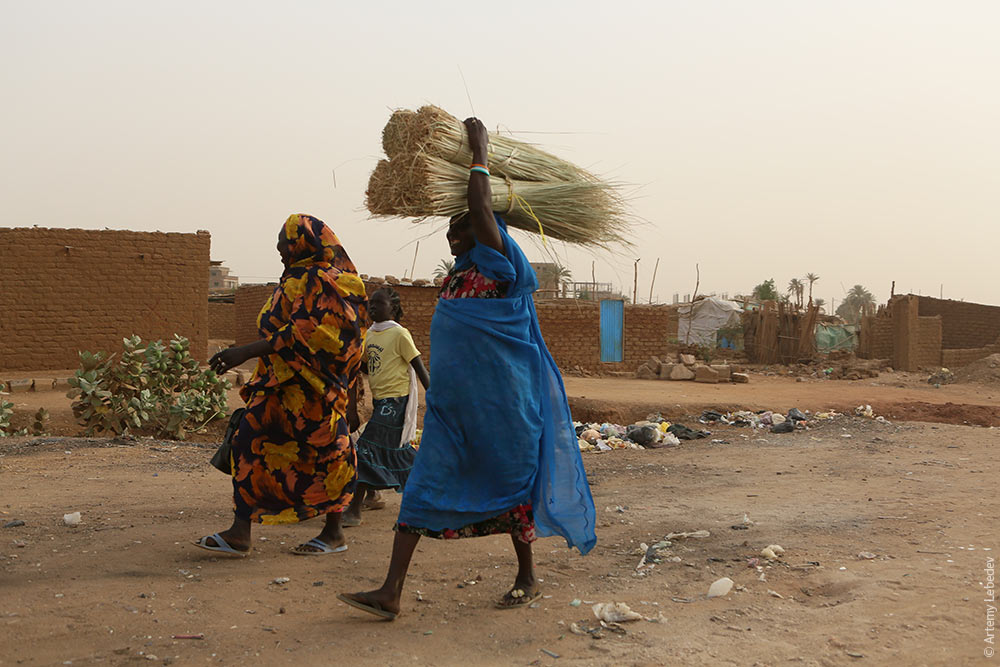 An intersection. 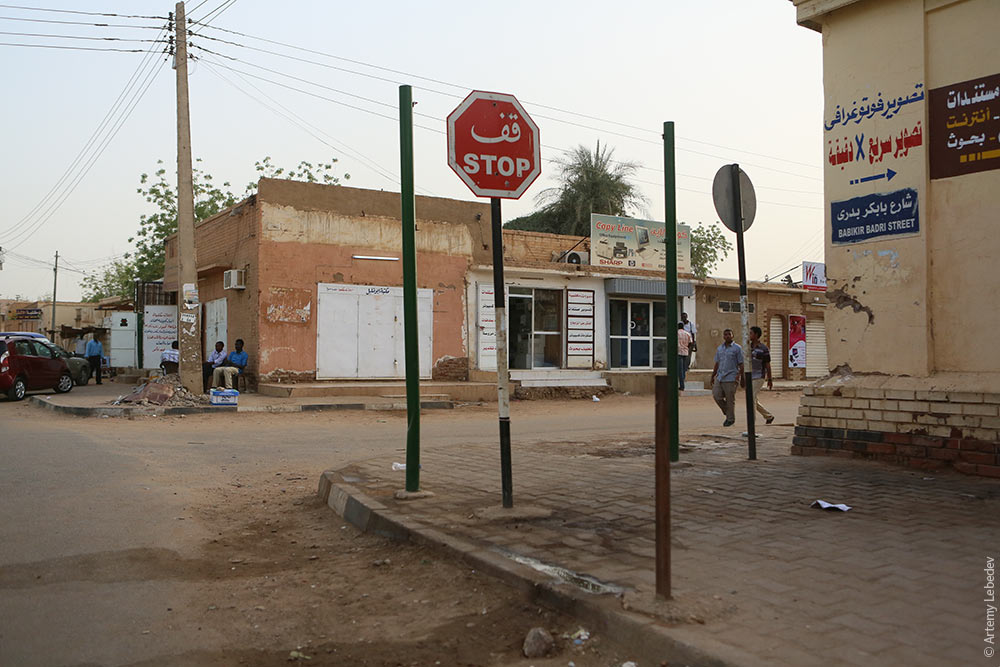 Parking. 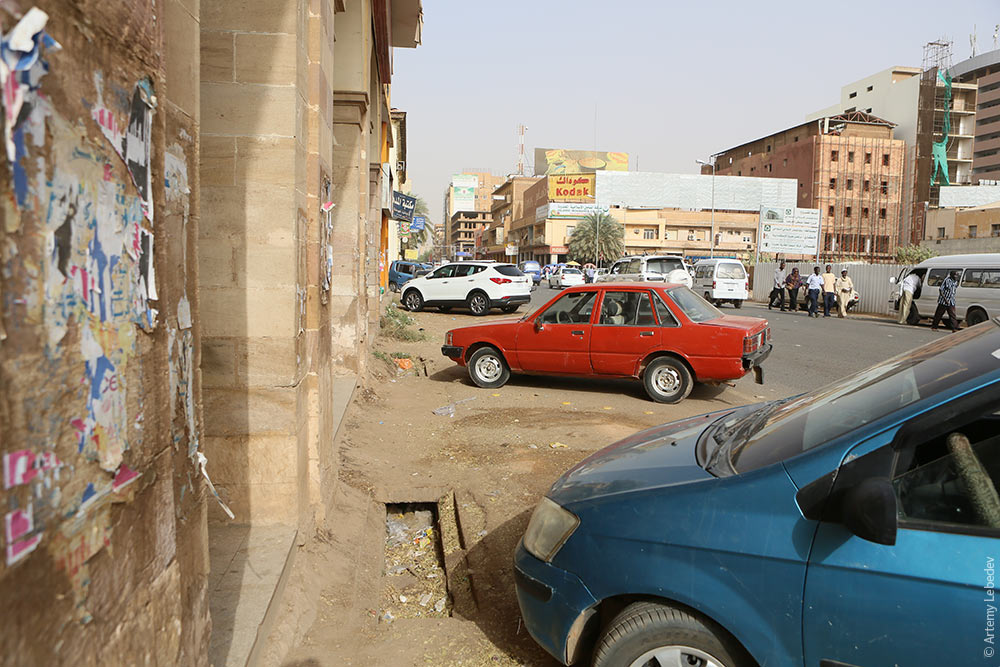 A street tea party. 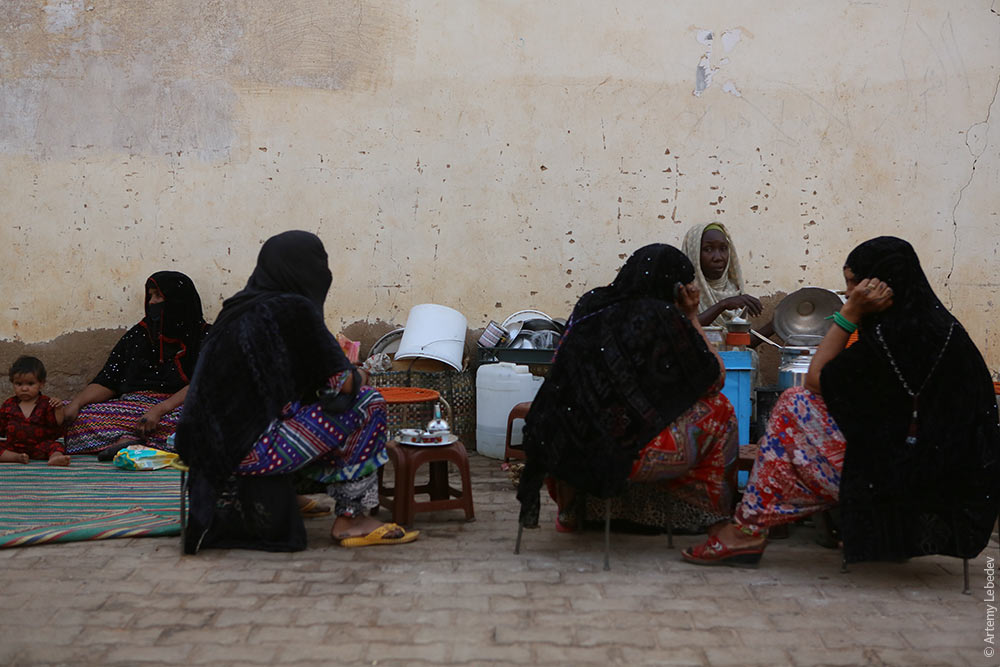 Saplings are protected from goats. 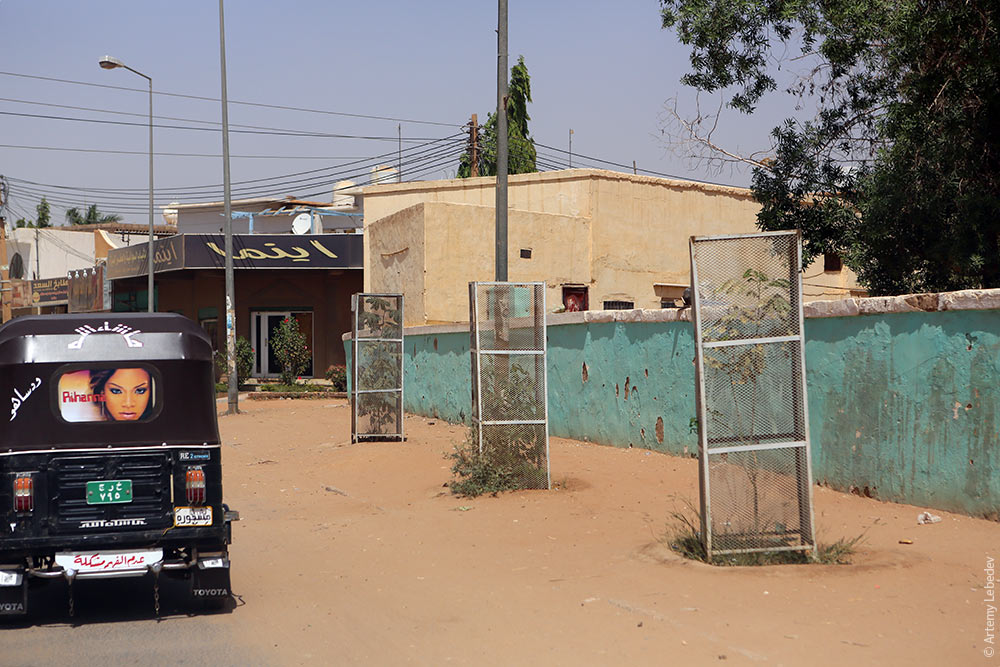 A holy fool. 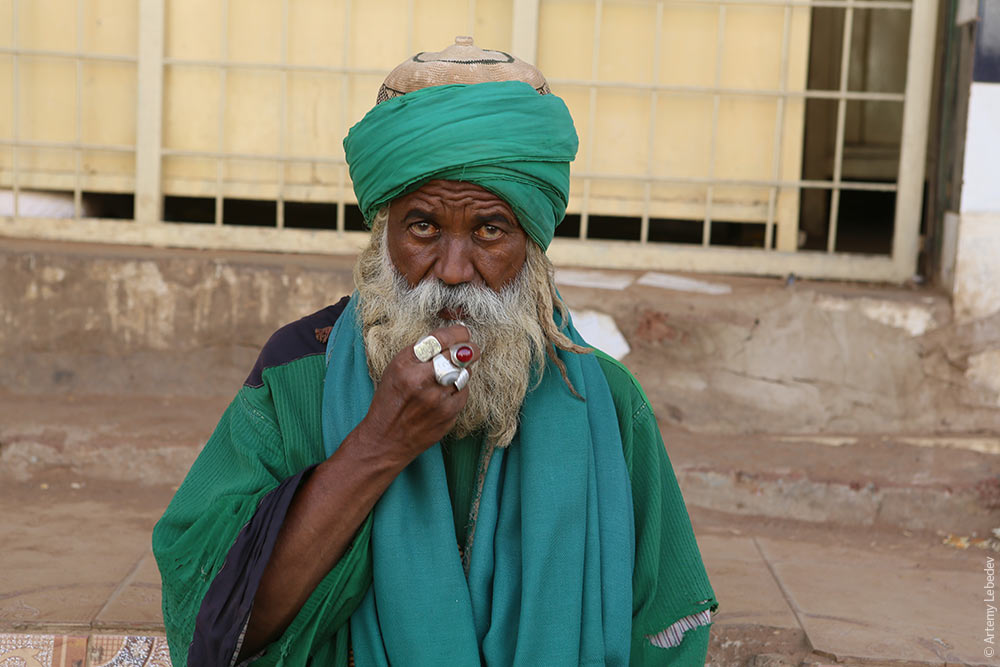 A man selling dates. 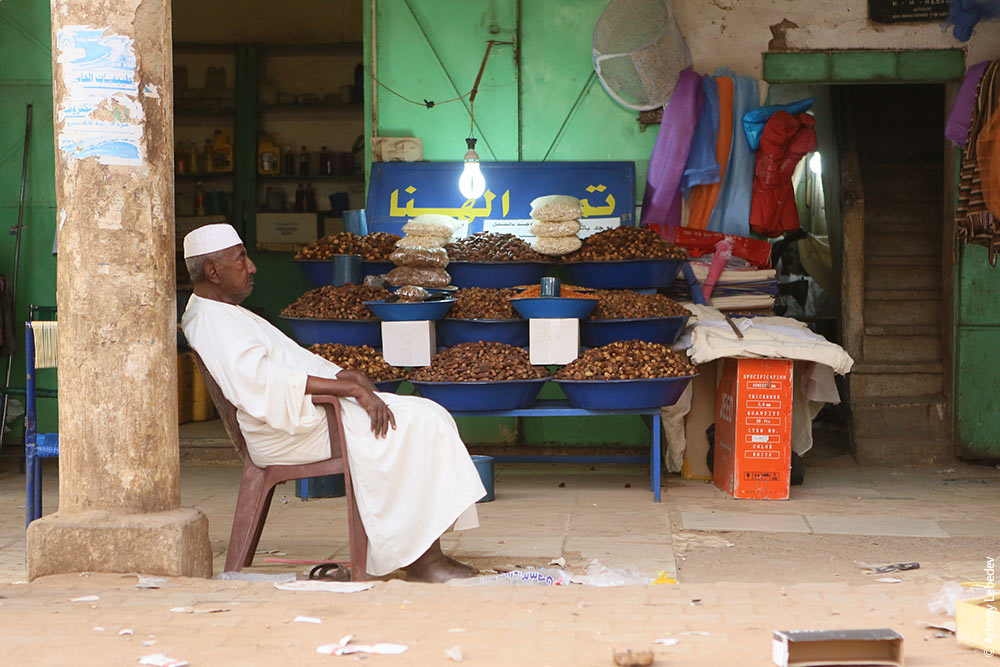 At the bazaar. 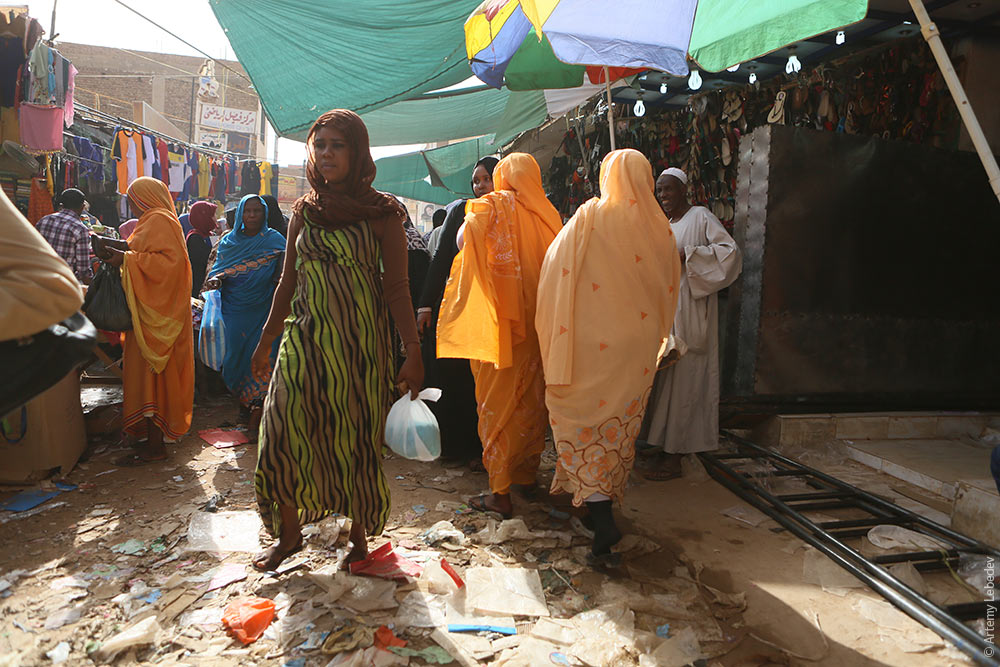 At a fish restaurant. 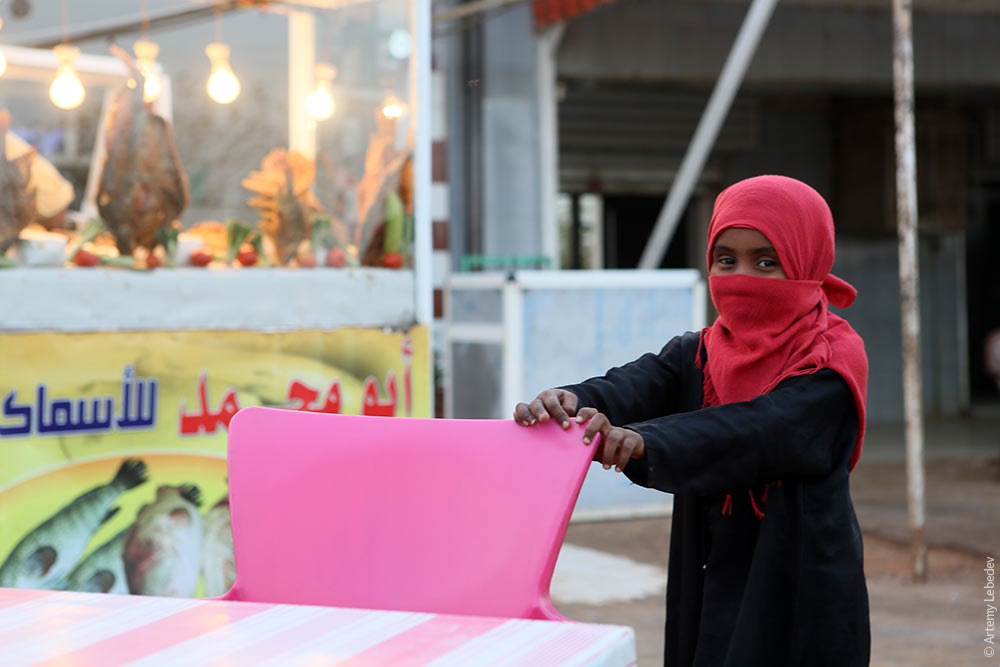 Advertising. 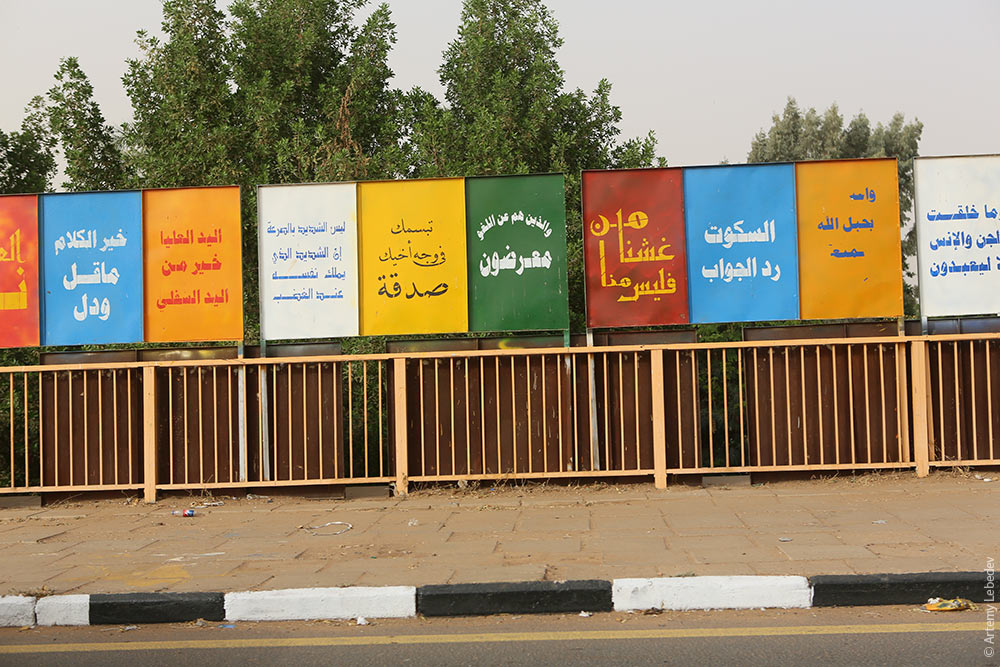 Someone forgot to insert trash bags into the trash cans that are supposed to have trash bags in them. 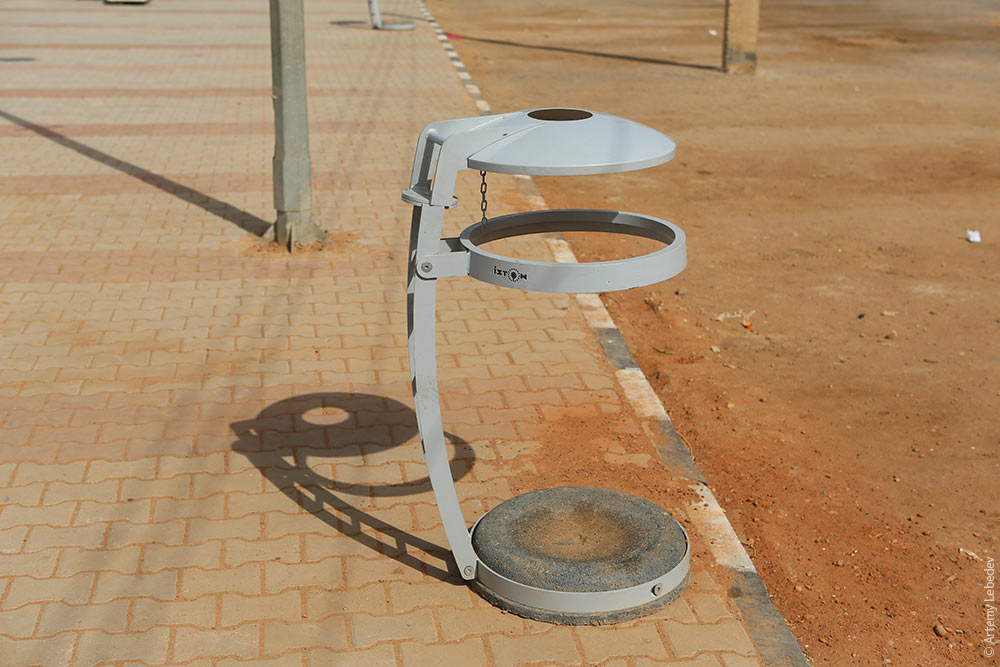 A trash can. 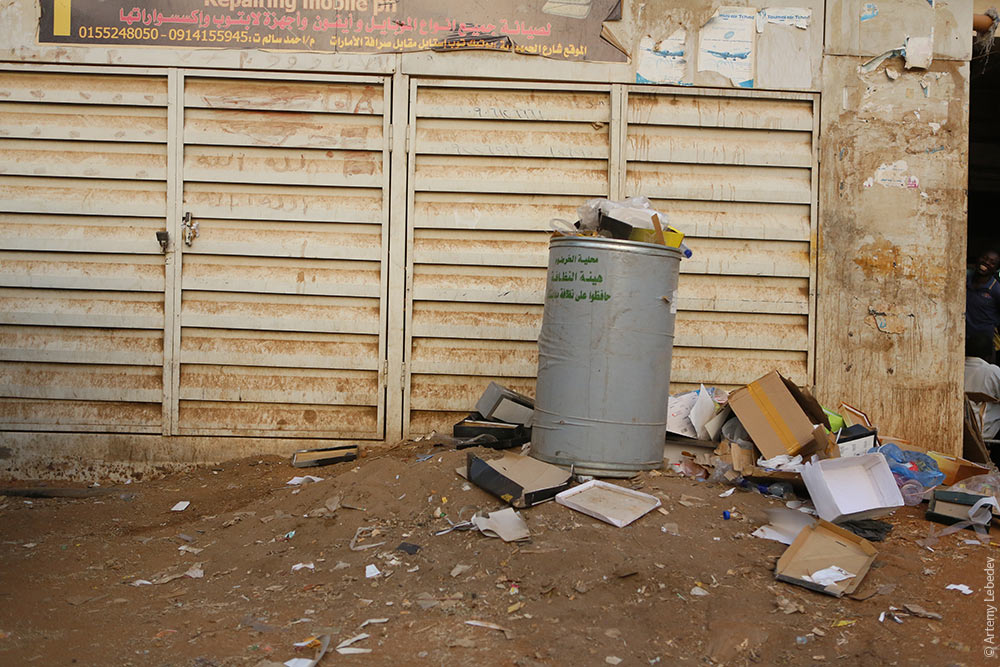 Another trash can. 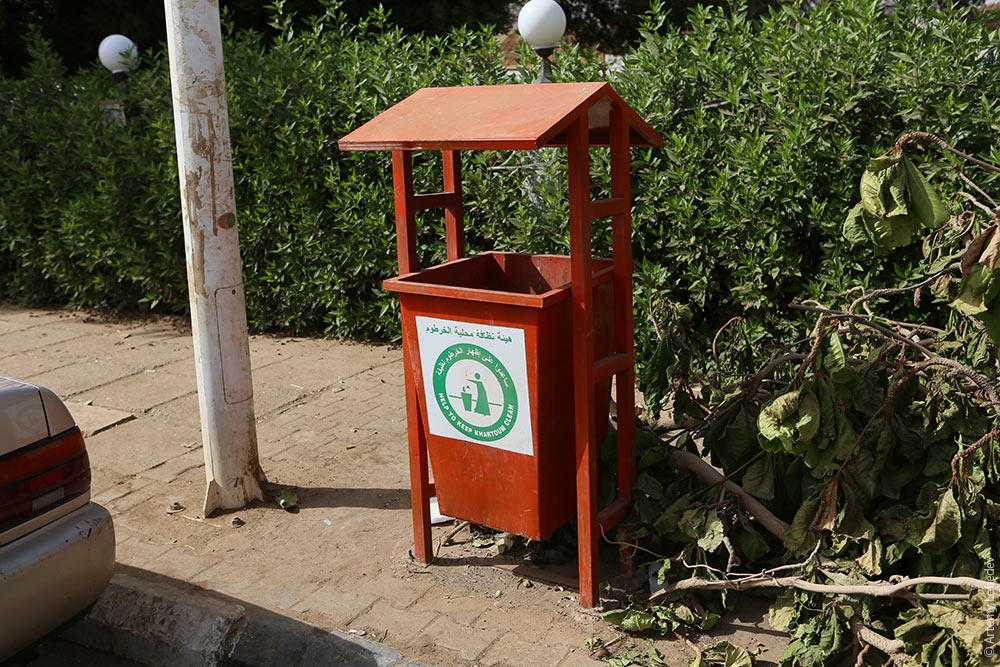 A dumpster. 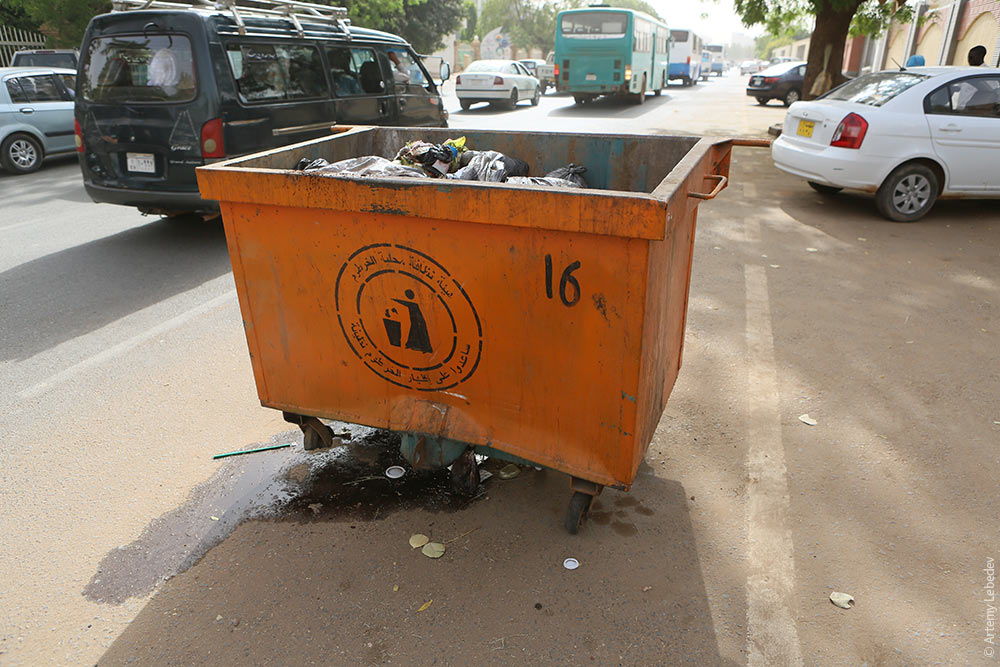 Wad MadaniMapSchool uniforms. 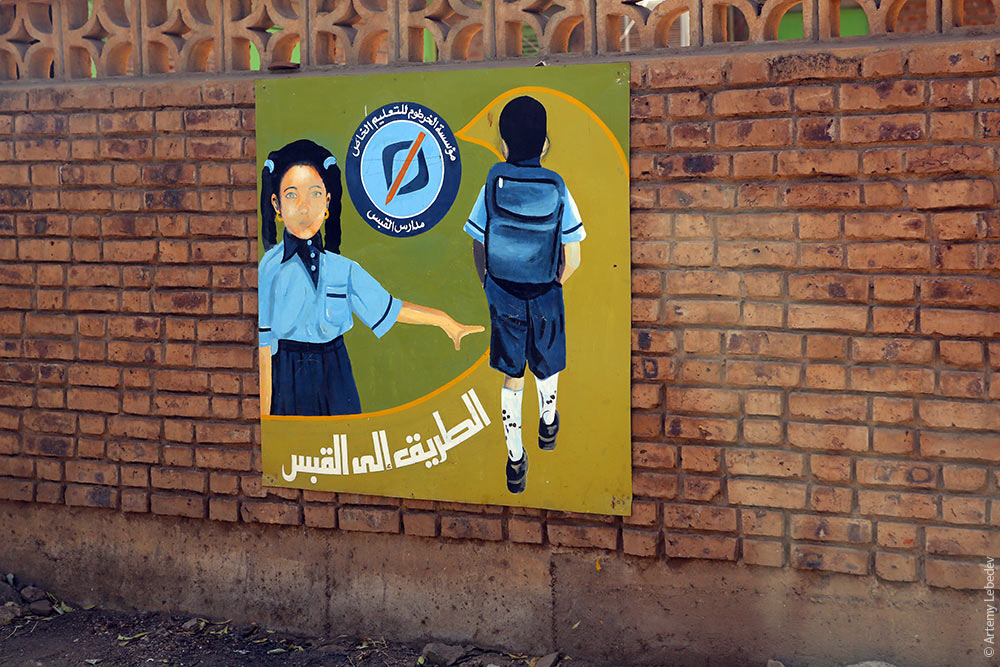 A kiosk where, among other things, you can top up your cell phone. 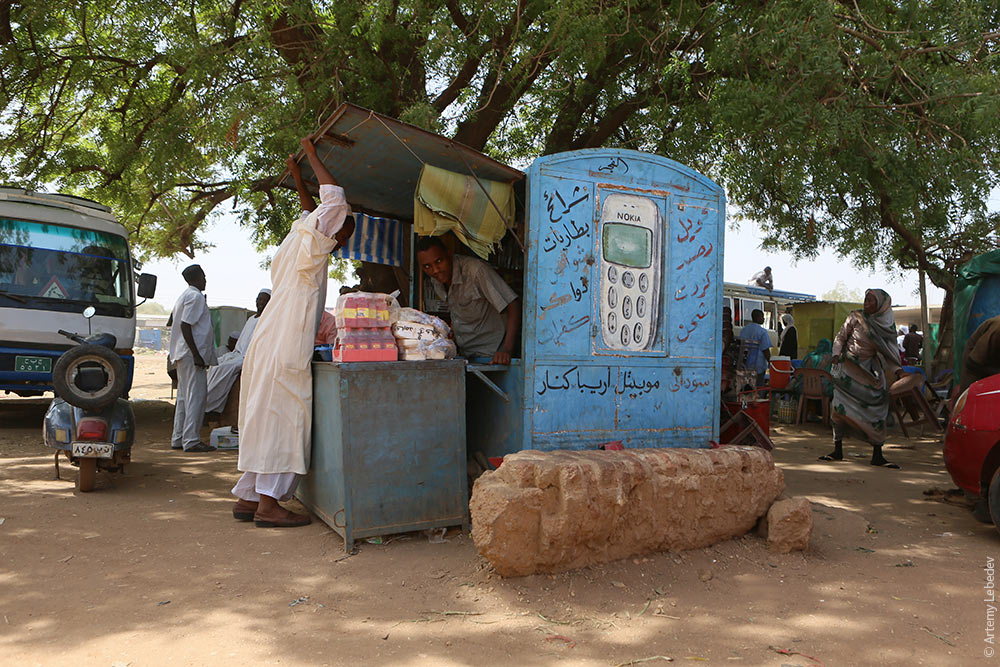 Someone’s bought some chicken. 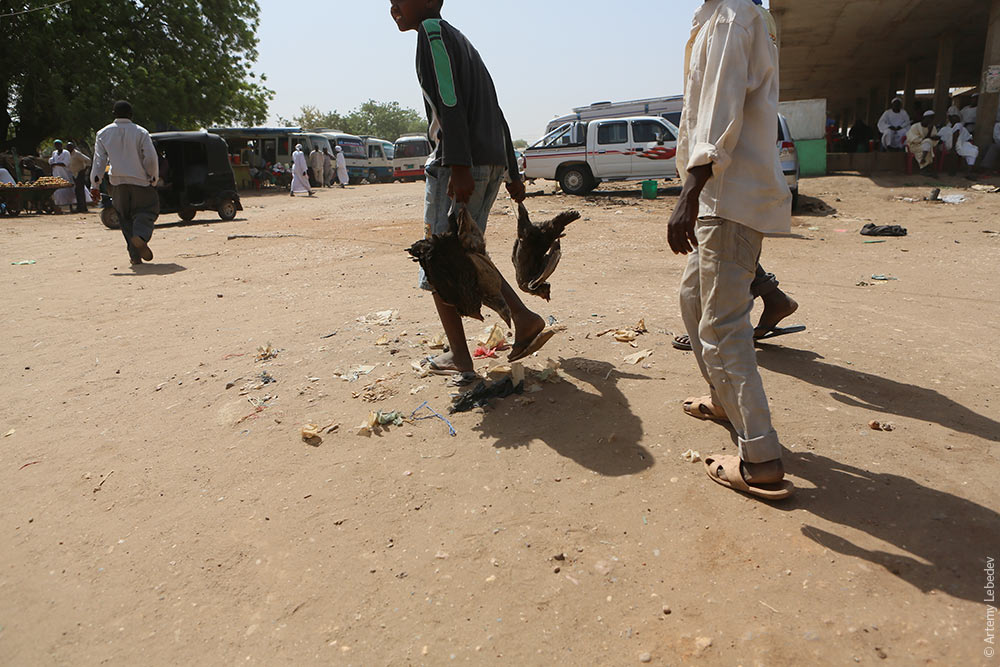 The post office. 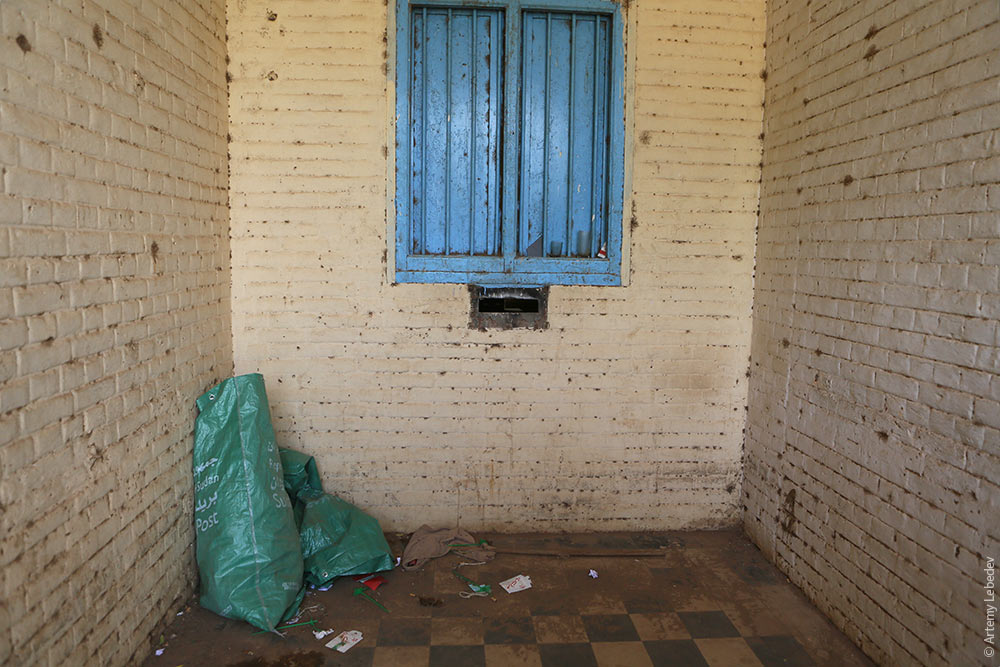 One of the most beautiful road signs in the world. 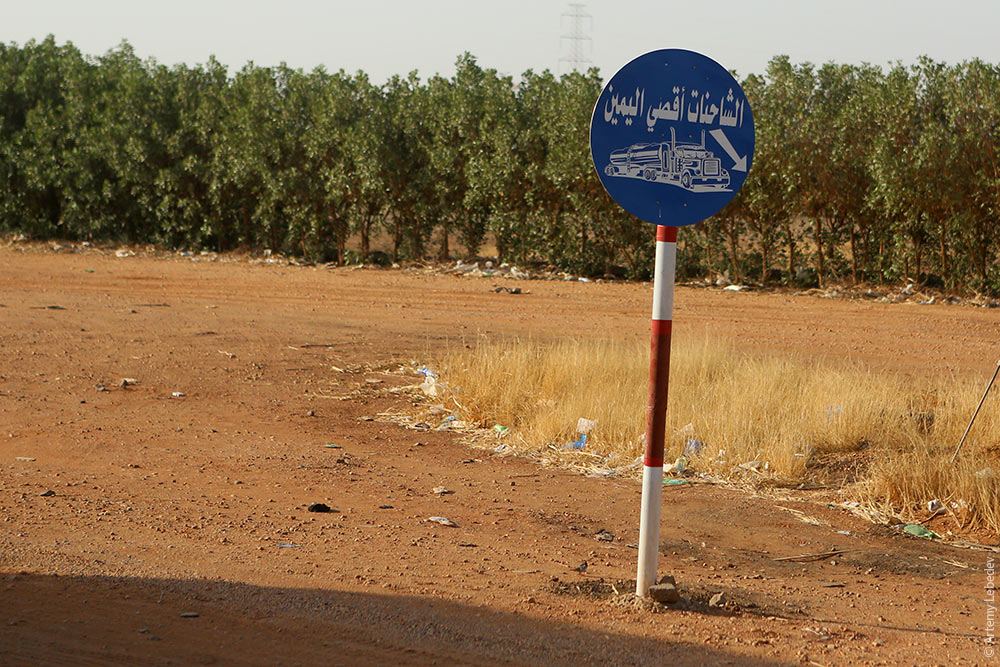 Auto repair. 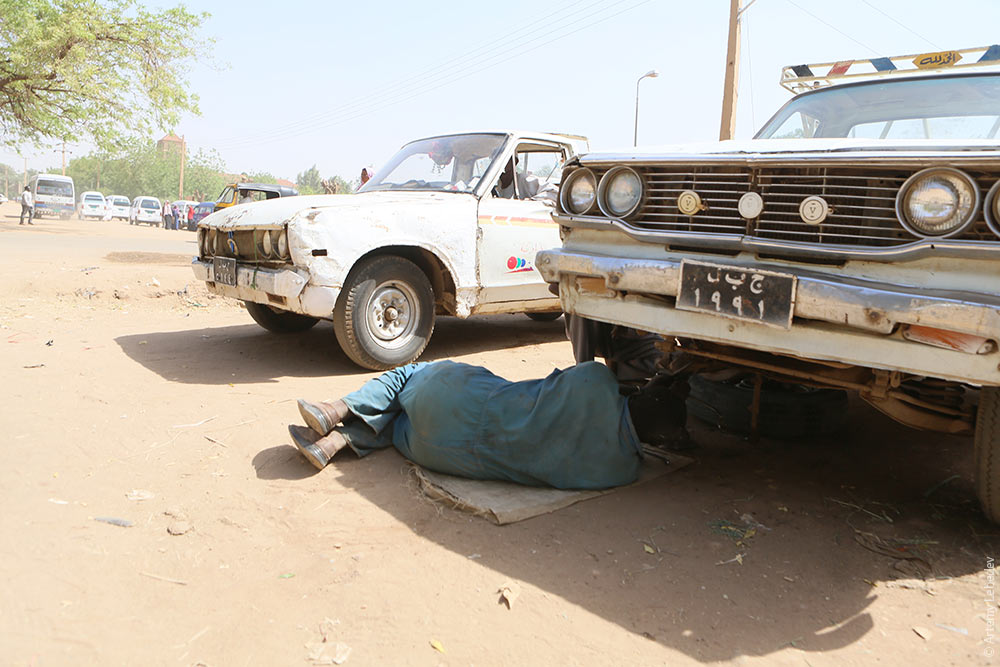 No horse-drawn carts allowed. 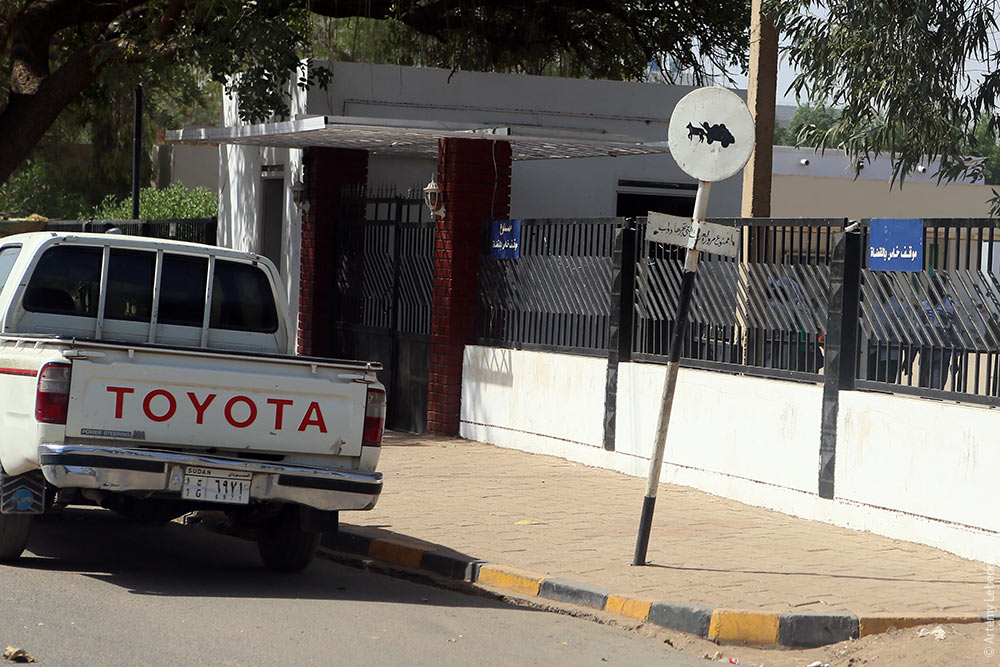 In this hospitable backwater town, I was forced to spend an hour and a half entertaining the local secret police by copying out my passport details and showing them all the photos on my camera. And this is given the fact that I actually had a permit to take photos in the country. You can imagine the ordeals of those who fail to get a permit in advance. SennarMapAn inactive railroad. 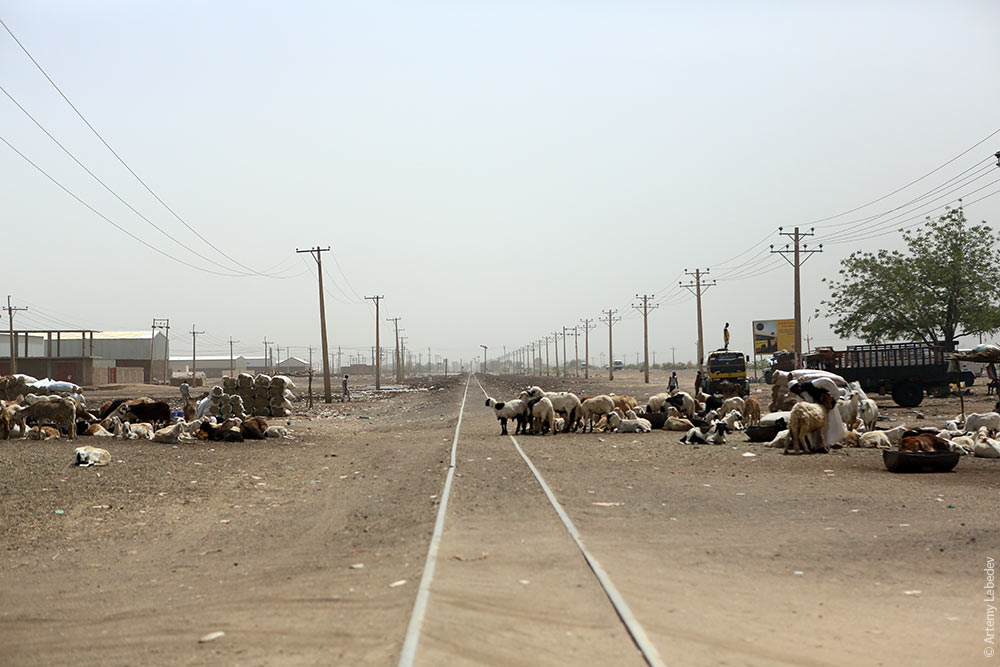 Half the railway ties have been taken out to be used for kindling. 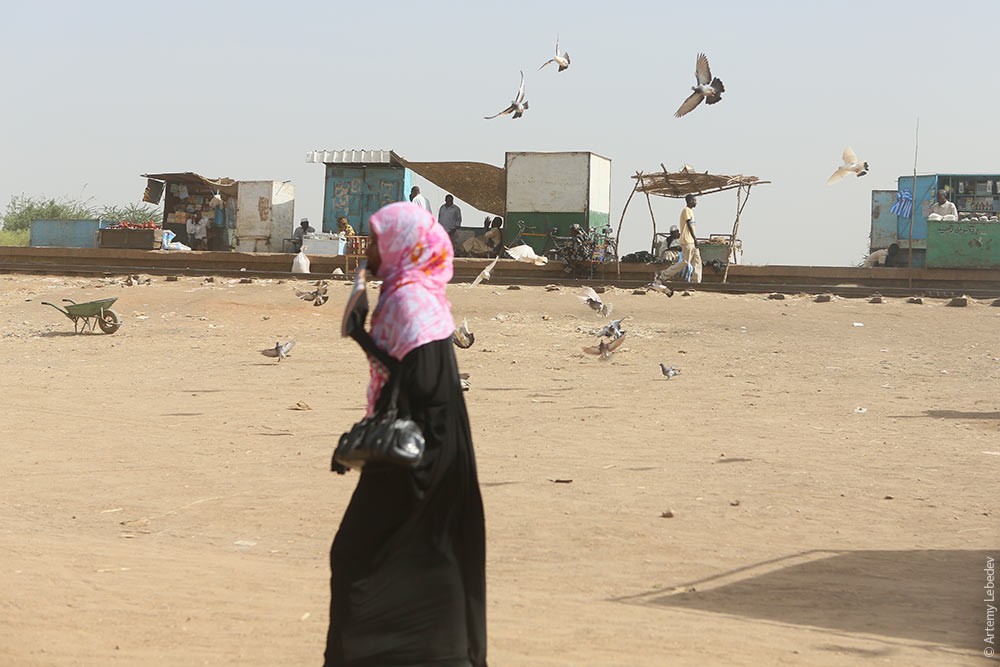 The joys of family life. 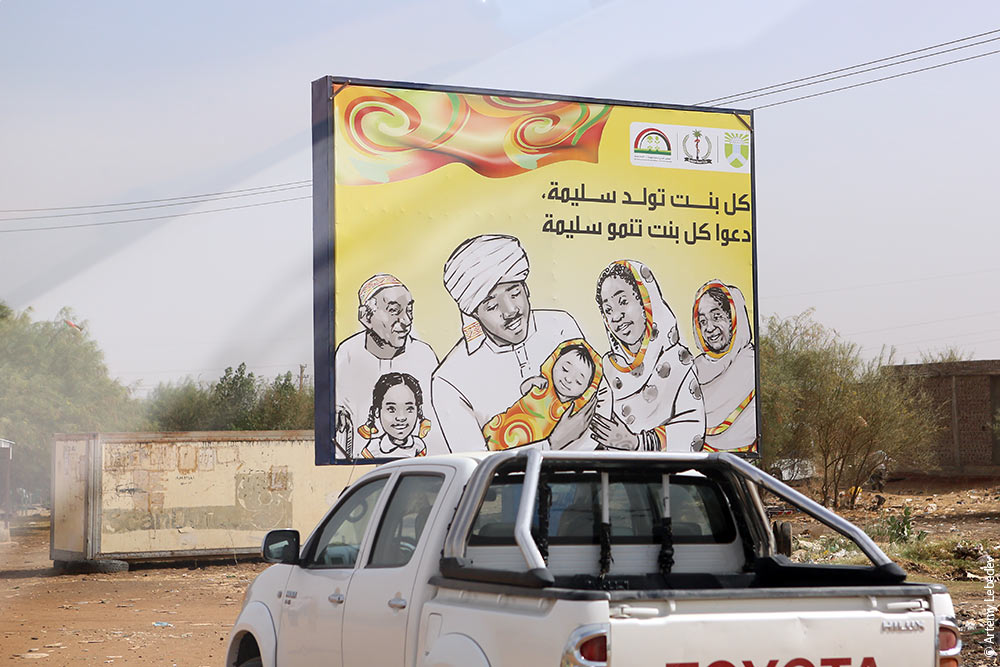 A man drags a goat home from the market. 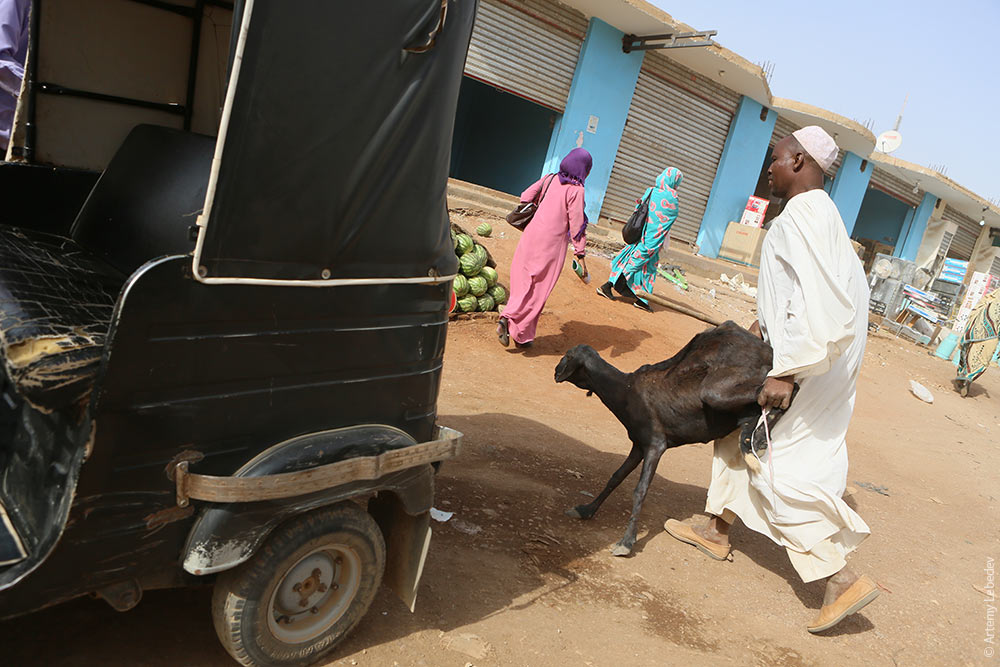 An old seamster. 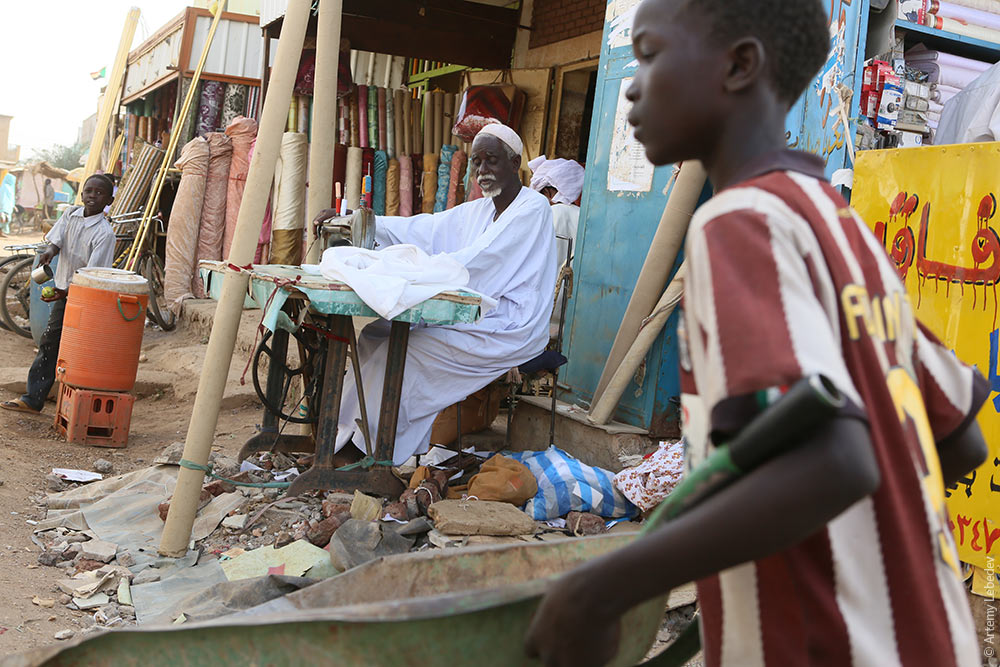 KostiMapOne of the cities in Sudan where foreign tourists aren’t expected to end up. 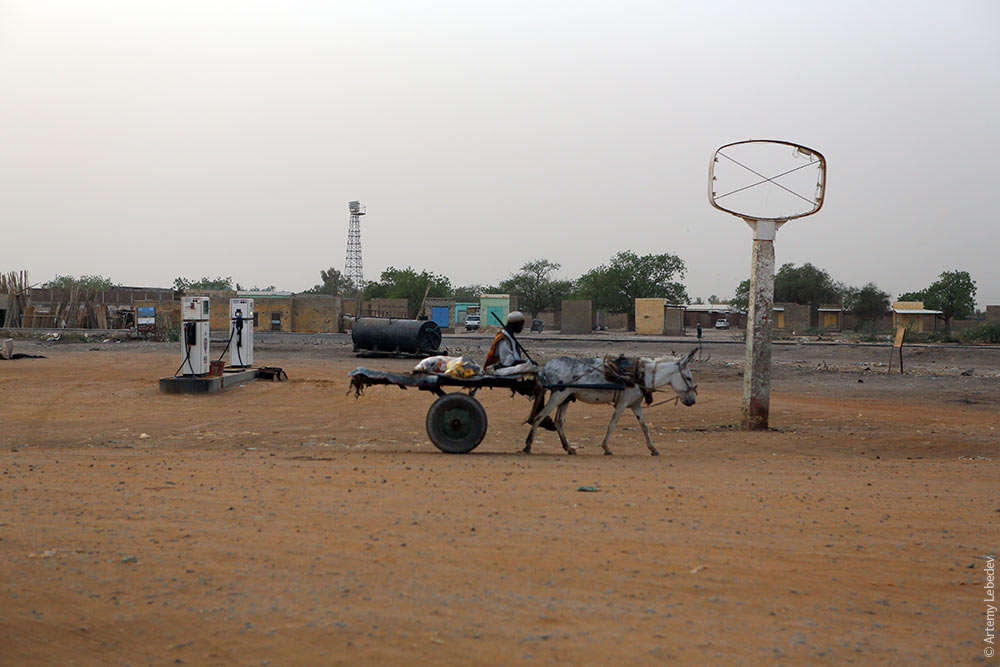 A trash can. 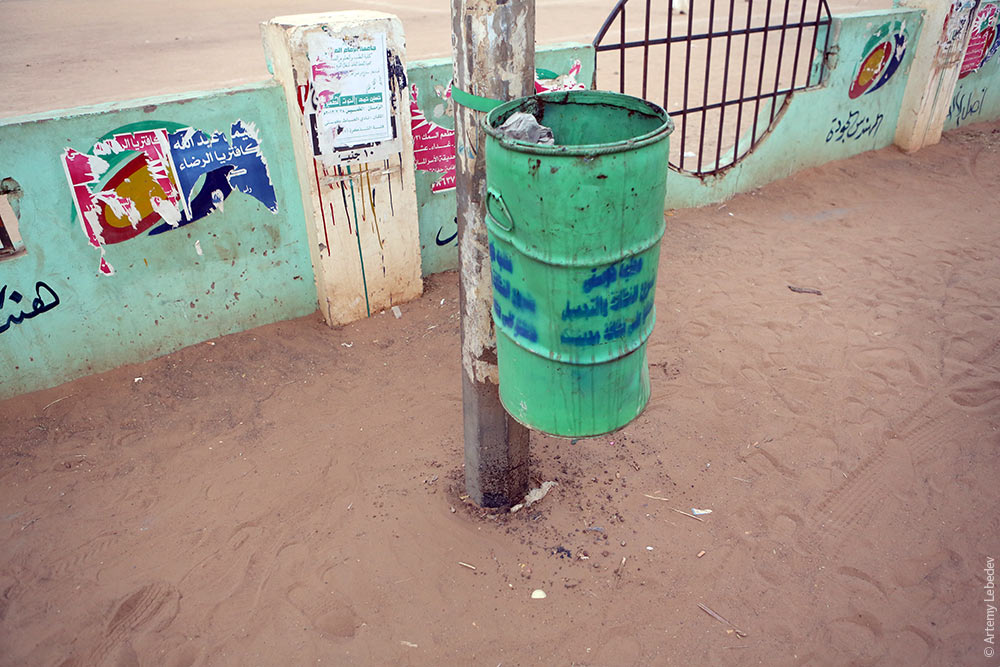 The market. 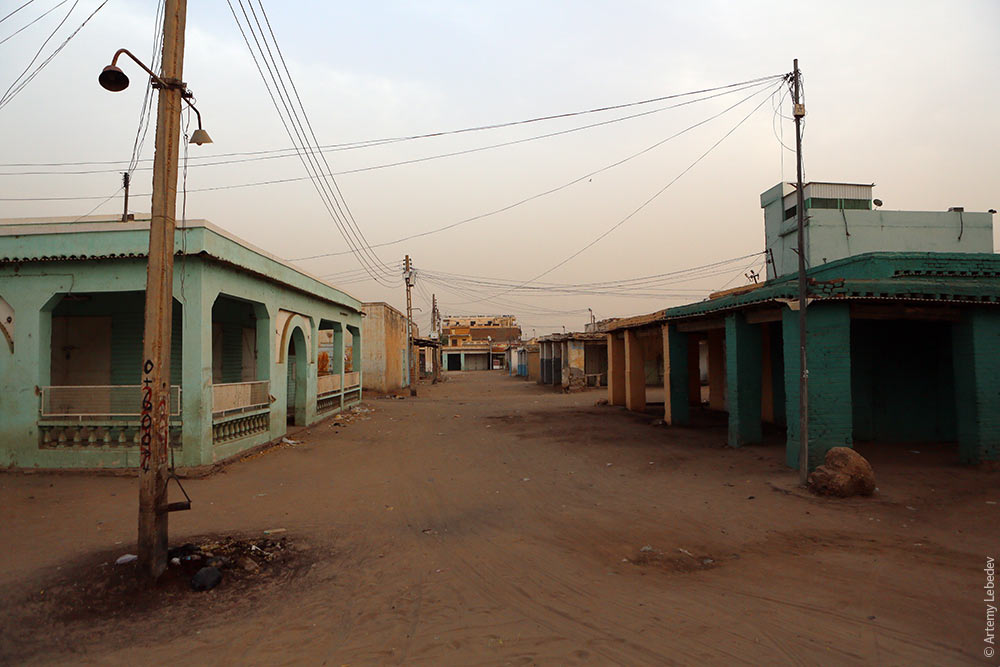 Washing a tuk-tuk. 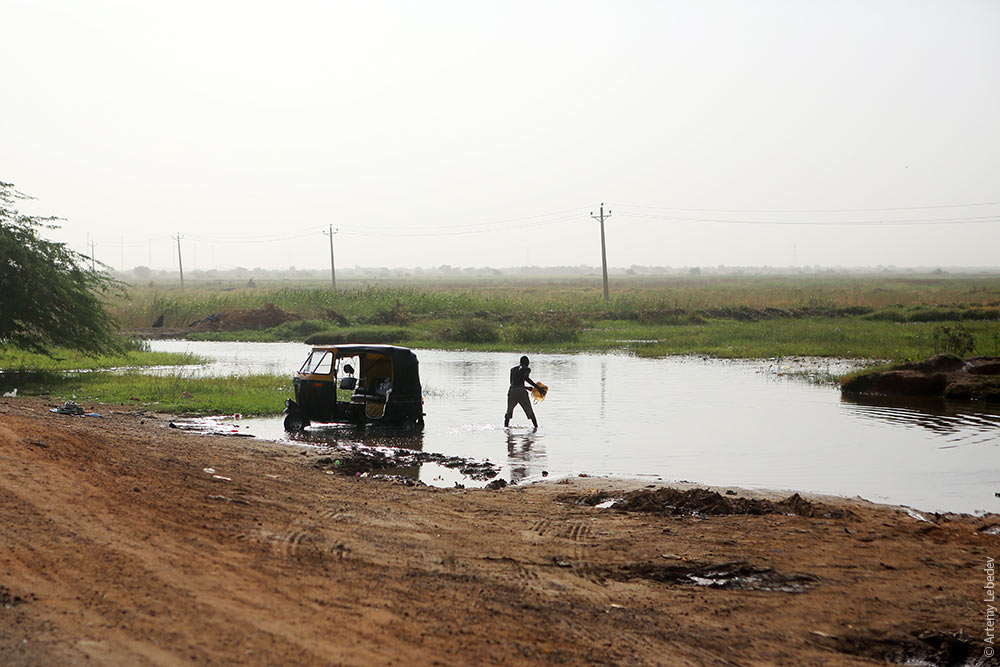 Delicious pasta. 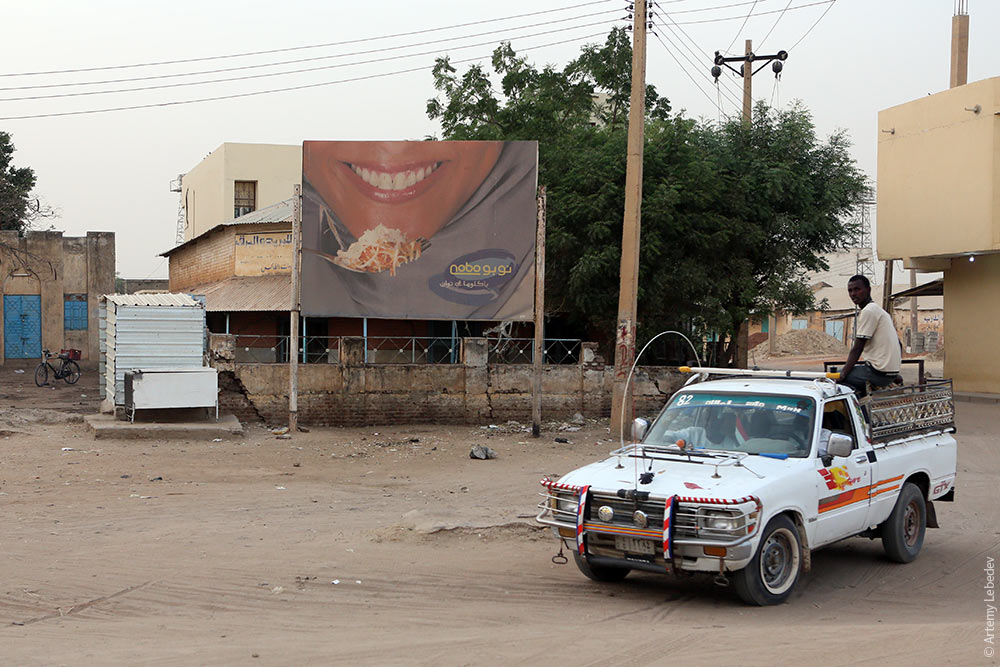 A man selling pre-packaged coal. 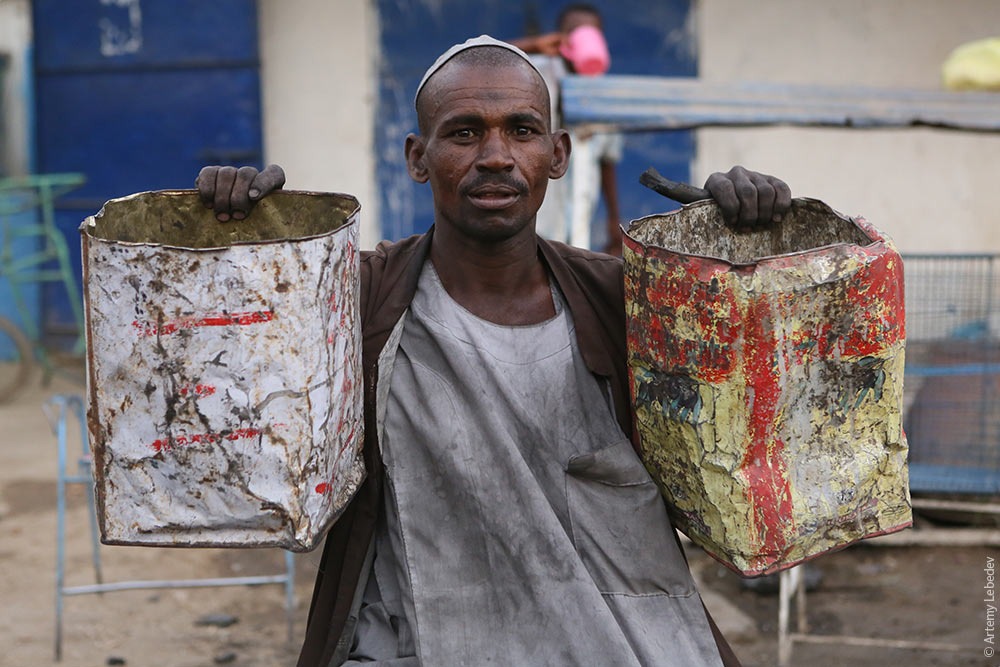 Time to get out of here. 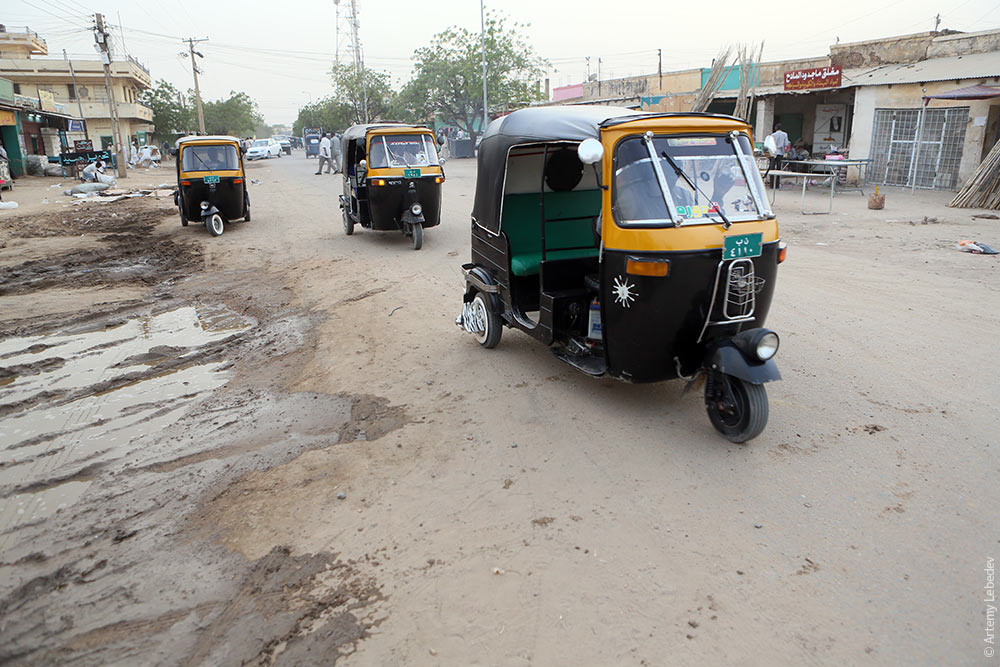 |